About JSOU
Popular Resources
Upcoming Courses
*Continuous Learning (CL) courses are not shownSpecial Operations Chaplaincy Crisis Care and Counseling
Joint Special Operations Forces Senior Enlisted Academy
Countering Weapons of Mass Destruction Foundations Course
Recent Publications
Foreseeing Inroads to Instability: JNIM’s Expansion in West Africa
Fertile Ground for Extremism: JNIM's Territorial Expansion from Mali into Burkina Faso Through a PMESII-PT Lens
Tip of the Spear, Edge of the Mind: Neurotechnology’s Roles in the Future of Special Operations
About JSOU
Popular Resources
Upcoming Courses
*Continuous Learning (CL) courses are not shownSpecial Operations Chaplaincy Crisis Care and Counseling
Joint Special Operations Forces Senior Enlisted Academy
Countering Weapons of Mass Destruction Foundations Course
Recent Publications
Foreseeing Inroads to Instability: JNIM’s Expansion in West Africa
Fertile Ground for Extremism: JNIM's Territorial Expansion from Mali into Burkina Faso Through a PMESII-PT Lens
Tip of the Spear, Edge of the Mind: Neurotechnology’s Roles in the Future of Special Operations
About this event
In a world increasingly defined by the Compound Security Dilemma and marked by conditions of volatility, uncertainty, complexity and ambiguity, no component of the military element of national power is better prepared to help secure vital U.S. interests than the nation's Special Operations Forces (SOF). U.S. SOF is ever-evolving in order to meet the challenges of an uncertain future, which now sees the dawning of a Fourth Age of SOF. An understanding of the ways in which SOF previously deterred conflict and combatted the nation's enemies is necessary, but not sufficient, to meet the challenges of the future. With an eye on the past and a focus on the future, this forum provides a platform in which to consider, debate, and explore what are sure to be many answers to the question, "What kinds of personnel, capabilities, authorities, mission sets, equipment and doctrine will best prepare America's Special Operations Forces to succeed in the Fourth Age of Special Operations?"
Agenda
Essential
Read Ahead
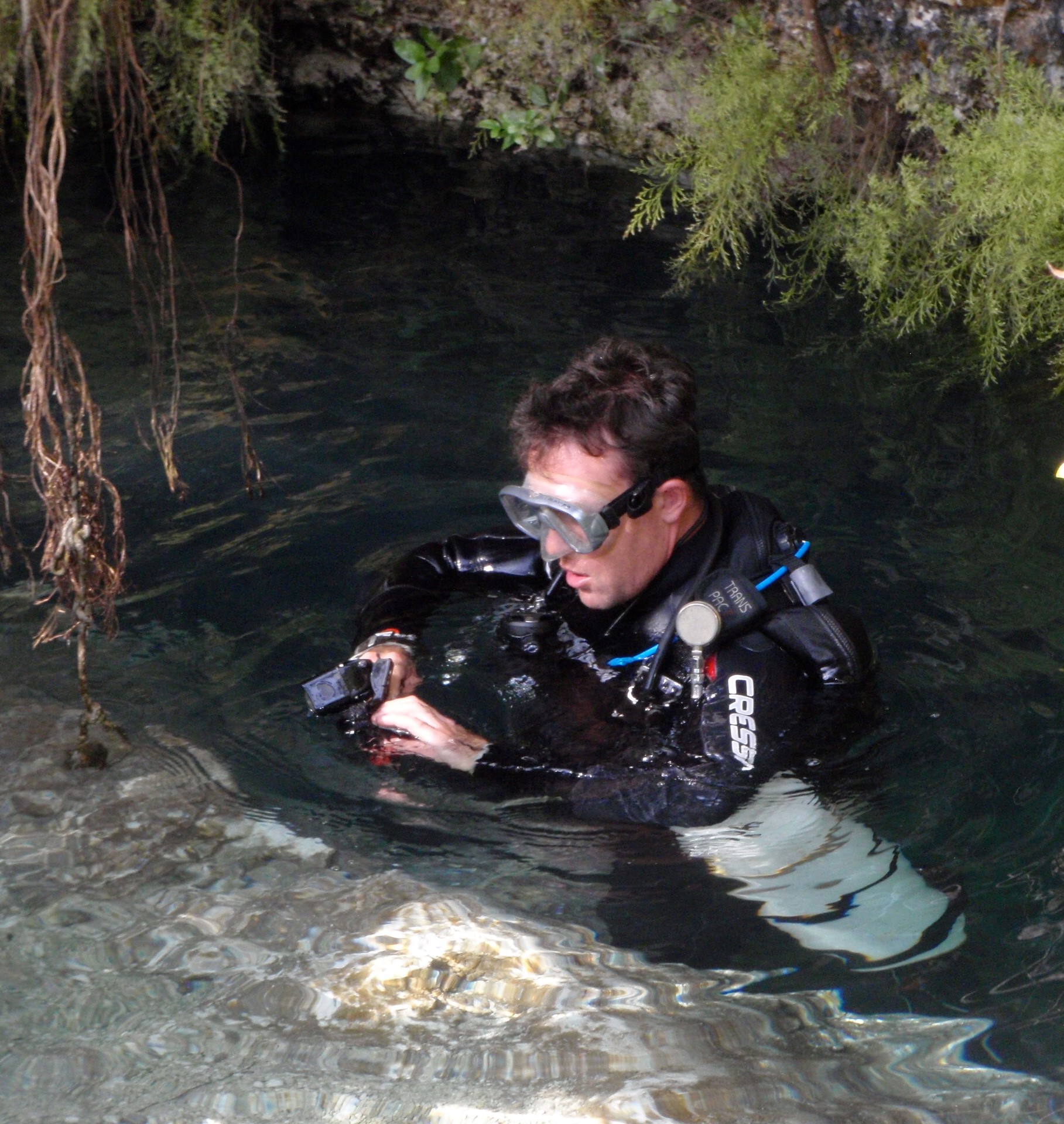
Andy Maher
Major Maher
has served in the Australian Army for 20 years and is taking leave in 2022
to complete a Doctorate examining Proxy Warfare. He has served with
multiple deployments to both Afghanistan and Iraq and has been a military
fellow and post-graduate lecturer with the University of New South Wales
(UNSW), Canberra. He is also a visiting fellow with the Charles Sturt
University Terrorism studies program, a non-resident fellow with the Modern War
Institute at West Point, and lectures with David Kilcullen on Irregular
Warfare and the Theory of Special Operations. In 2021, he was an
Australian Chief of Army Scholar.
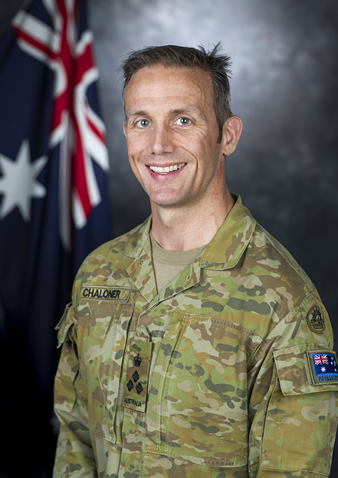
Brett Chaloner
BRIG Chaloner entered Army via the Australian Defence Force Academy in 1991 and
commissioned in 1994. Following service in Transport and Infantry, BRIG Chaloner
completed Commando selection and reinforcement training and served in the 4
th Battalion,
The Royal Australian Regiment (Commando) (4RAR(Cdo)). He subsequently completed
Special Air Service Regiment selection and training, serving in a range of command and
operations appointments. These included deployment to East Timor and Counter Terrorism
duties in support of the Sydney 2000 Olympics. Concurrent to service as the Adjutant of the
Royal Military College – Duntroon, BRIG Chaloner deployed in support of operations in Iraq
in 2003.
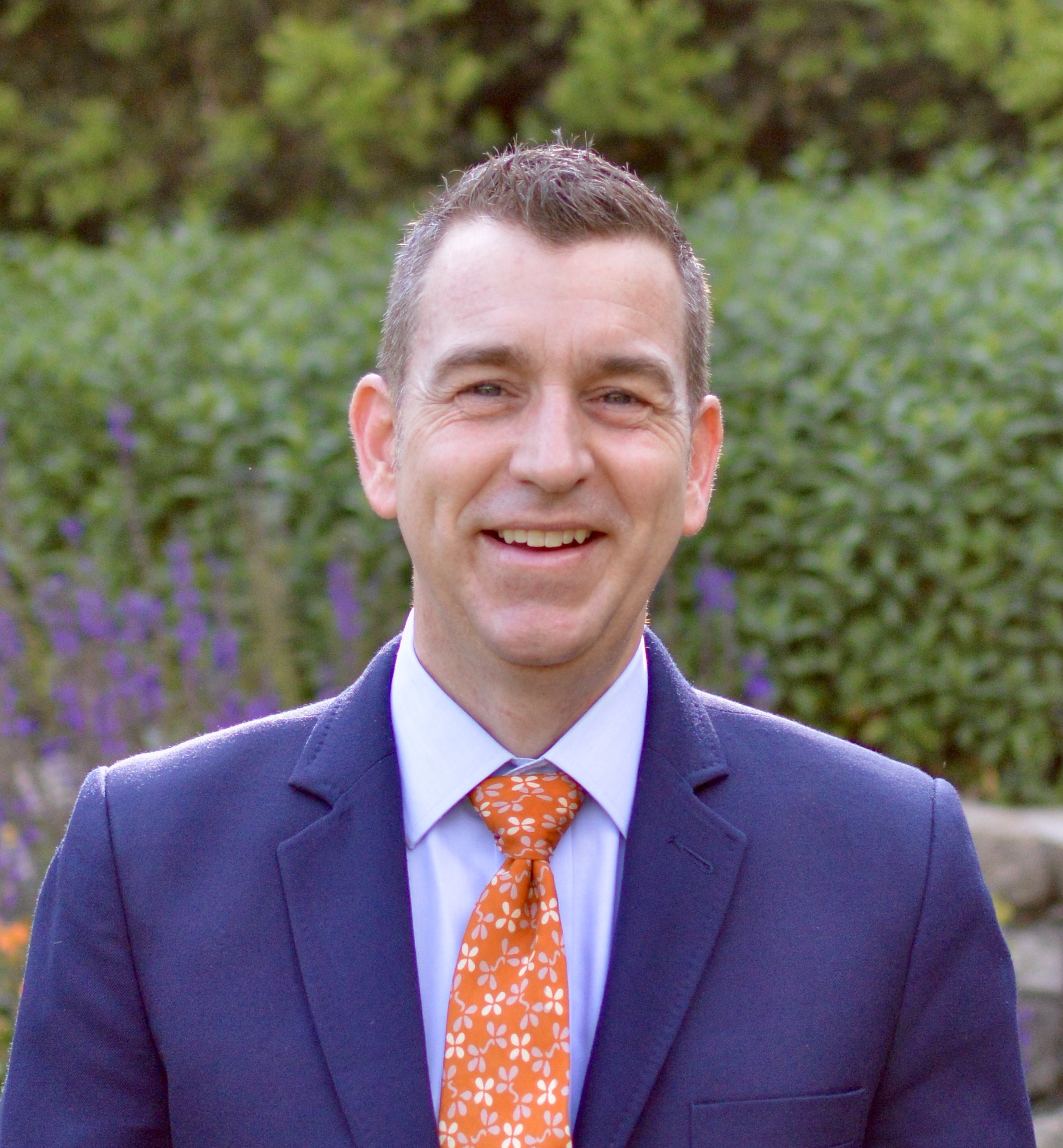
Brian Babcock-Lumish
Brian Babcock-Lumish is the
director of the General David H. Petraeus Center for Emerging Leaders at the
Institute for the Study of War. He is an adjunct associate professor in the
Center for Security Studies at Georgetown University, a nonresident fellow at
the Modern War Institute at West Point, and a security fellow of the Truman
National Security Project. He served as a U.S. Army military intelligence
officer, retiring after 24 years in uniform. Dr. Babcock-Lumish had two deployments
to Iraq, first training Iraqi intelligence collectors and then serving as
General Petraeus’ daily intelligence briefer during “The Surge” in 2007. At
U.S. Army Pacific, he served as the analysis chief leading 200 analysts
watching the 36 countries of the Indo-Pacific. He served two tours teaching
international relations in the Department of Social Sciences at the United
States Military Academy at West Point where he also led the Academy’s graduate
scholarship program. Formerly an enlisted Russian linguist, Dr. Babcock-Lumish double
majored in International & Strategic History and International Politics and
received his commission from West Point. Upon graduation, he earned an M.Phil.
in Russian and East European Studies at Oxford University as a U.S. Marshall
Scholar. Prior to his first tour on faculty at West Point, he completed his Ph.D.
in War Studies at King’s College London as a Harry S. Truman Scholar. He is a
member of the Council on Foreign Relations, the Royal United Services
Institute, the International Institute for Strategic Studies, and Chatham
House.
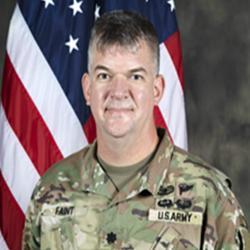
Charlie Faint
LTC Charles (Charlie) Faint commissioned into the Military
Intelligence Branch of the US Army through the ROTC program at Mercer
University and claims Alabama as his home state. After completing a branch detail to the
Infantry in the 101st Airborne Division, he subsequently served as an
intelligence officer in a variety of units, including ing the 2nd Infantry
Division, the 5th Special Forces Group, the 160th Special Operations Aviation
Regiment, and the Joint Special Operations Command. His most recent operational assignment was at
Fort Shafter, Hawaii, where he served as the Chief of Intelligence Plans and
Exercises and then Chief of Intelligence Operations on the G2 staff of US Army
Pacific. LTC Faint currently serves as
an Assistant Professor and Deputy Director of the Modern War Institute at West
Point, and instructs the Comparative Defense Policy course. During a previous tour at West Point, LTC
Faint was the Course Director for MX400, the Superintendent’s capstone course
on Officership, for two years. He also
instructed International Relations, American Politics, Comparative Politics,
Conflict and Negotiation, and Intelligence and National Policy for three years
in West Point’s renowned Department of Social Sciences.
Christopher Fussell
Chris
was commissioned as an Officer in the United States Navy in 1997, and spent the
next 15 years on US Navy SEAL Teams, leading SEAL elements in combat zones
around the globe. From war-torn Kosovo, to counter-terrorism operations in Iraq
and Afghanistan, to highly specialized efforts in the troubled areas of the
Arabian Peninsula and North Africa, he experienced and led through the modern
evolution of the US military’s Special Operations community, first on SEAL
Teams Two and Eight, then in the Naval Special Warfare Development Group.
Chris
is also a Senior Fellow for National Security at New America, a Washington,
DC-based non-partisan think tank dedicated to understanding the next generation
of challenges facing the United States. Chris is actively involved in several
non-profits dedicated to helping veterans and their families, and holds a seat
on the Board of Directors for the Navy SEAL Foundation. He is also a lifetime
member to the Council on Foreign Relations.
Chris
earned a Master of Arts in Irregular Warfare from the Naval Postgraduate
School, receiving the Pat Tillman Award for highest peer-rated Special
Operations Officer in the program. His thesis work focused on the interagency
collaboration and intelligence sharing processes that drove effective,
cross-silo collaboration during the peak of the wars in Iraq and Afghanistan.
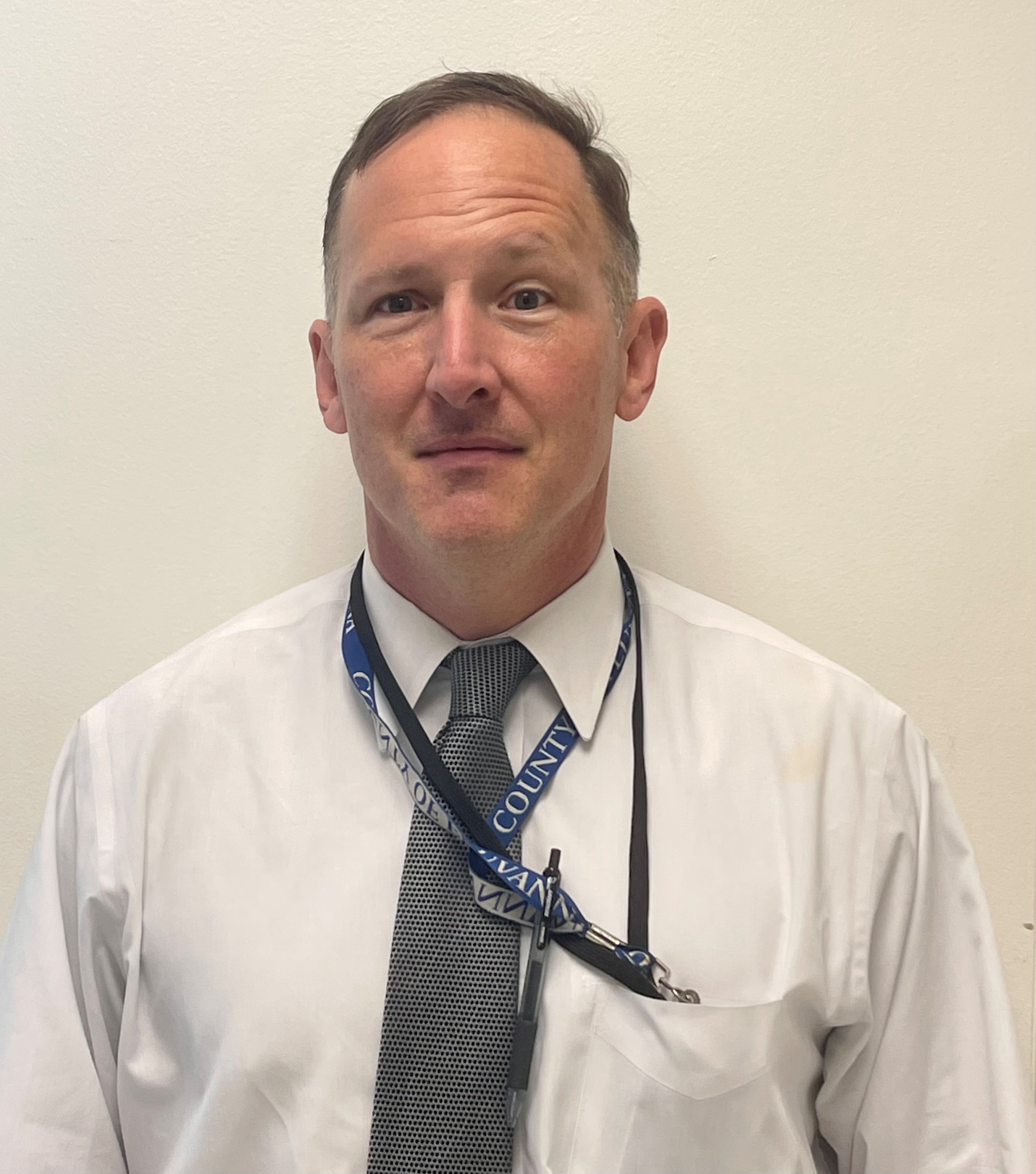
Cristian Simon
Cristian Simon is in the U.S. Army for 22 years, 7 as a
Western Hemisphere Foreign Area Officer. He spent 2 years as a WHINSEC
Instructor, 2.5 years in the US Embassy in Nicaragua, 2.5 years in the Joint
Staff J5, and 4 years with the OUSD(I&S) CPE WHEM -- current WHEM Team
Chief.
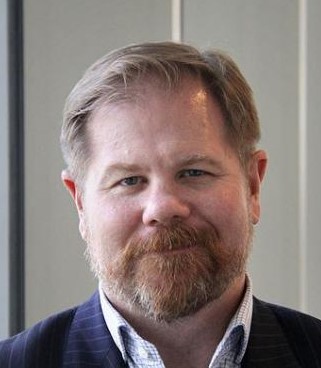
David Kilcullen
David Kilcullen is Professor of Practice in the Center on the
Future of War and the School of Politics and Global Studies, a Senior Fellow at
New America and an author, strategist and counterinsurgency expert. He served
25 years as an army officer, diplomat and policy advisor for the Australian and
United States governments, in command and operational missions (including
peacekeeping, counterinsurgency and foreign internal defense) across the Middle
East, Southeast Asia and Europe. In the United States he was Chief Strategist
in the State Department’s Counterterrorism Bureau, and served in Iraq as Senior
Counterinsurgency Advisor to General David Petraeus, before becoming Special
Advisor for Counterinsurgency to Secretary of State Condoleezza Rice. He is the
author of a number of influential books including, The Accidental
Guerrilla: Fighting Small Wars in the Midst of a Big One and Counterinsurgency, Out
of the Mountains and, Blood Year: The Unraveling of Western
Counterterrorism based on an essay that received the Walkley Award,
the Australian version of the Pulitzer Prize.
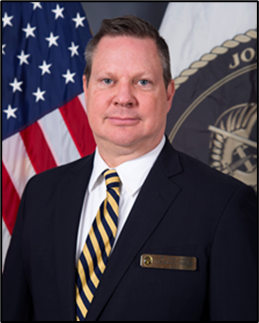
Doug Jordan
Mr. Doug Jordan is Course Director for the newly developed Strategic
Influence and Information Advantage (SAIA) Integrated Program of Study
(IPoS) for the Joint Special Operations University (JSOU), MacDill AFB,
Florida. He also serves as the Course Director for the the Special
Operations Forces Security Cooperation Course (SOF-SC) and the
Information Related Capabilities Seminar (IRC-S) and is assigned to the
Department of International Education and Joint, Interagency,
Intergovernmental, Multinational and Commercial (JIIM-C).
JSOU is the joint educational component of the United States Special
Operations Command (USSOCOM), a global combatant command which
provides fully capable Special Operations Forces (SOF) and synchronizes
DOD planning against terrorists and terrorist networks.
He was detailed from 2019-2020 to the Office of Defense Cooperation, US Embassy Ukraine as the
Ministry of Defense Advisor for Strategic Communication. Mr. Jordan is a Master Instructor at JSOU
responsible for the coordination, development and delivery of senior leader education programs in
support of U.S. and International SOF personnel, including strategic and operational leadership and the
coordination of joint special operations and irregular warfare education. He earned Defense Security
Cooperation- Intermediate Certification in 2020. He graduated from the Air War College (Non-Resident)
in 2021.
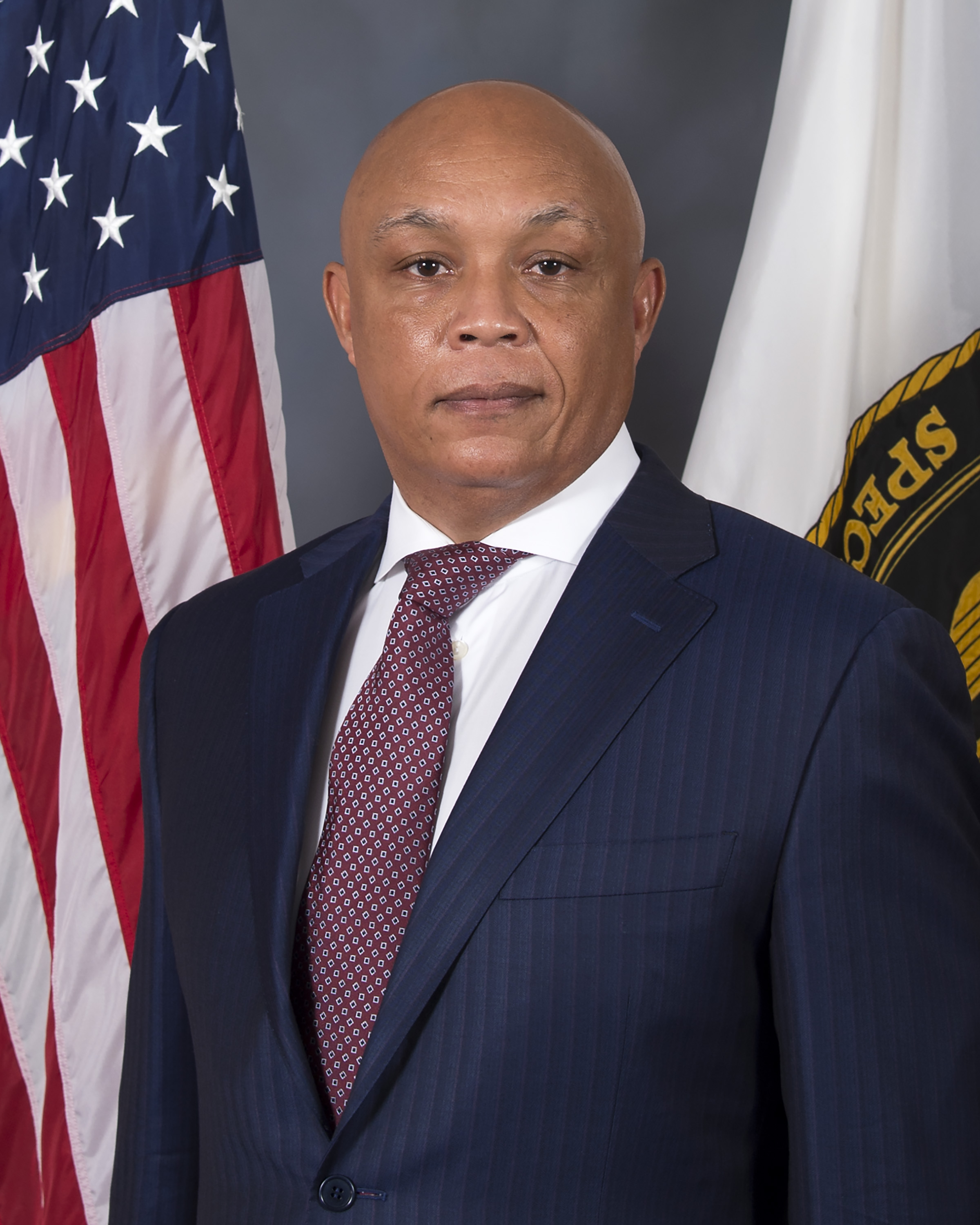
Isaiah Wilson
Dr.
Isaiah (Ike) Wilson III, PhD is the
President of the Joint Special Operations University (JSOU). He is a master
strategist and a leading advocate for change in America’s concepts of and
approaches to security and defense policy, and affairs of war and peace. A
decorated combat veteran, former army aviator, and strategist, he most recently
served as Director (Chief), Commander’s Initiatives Group, for the Commander,
U.S. Central Command. A full professor of political science, Dr. Wilson
formerly served as a professor and academic program director at West Point,
where he also founded the West Point Grand Strategy Program. He has also taught
extensively at the undergraduate and graduate levels at a number of prestigious
colleges and universities, including Columbia University, Yale University,
George Washington University, and the National War College. Prior to his
appointment with U.S. Special Operations Command, Dr. Wilson was the Director
of the U.S. Army War College (USAWC) Strategic Studies Institute (SSI) and
USAWC Press. Dr. Wilson has numerous publications to his credit,
including, Thinking Beyond War: Civil-Military Relations and Why America Fails
to Win the Peace. Dr. Wilson is a life member of the Council on Foreign
Relations and an International Affairs Fellow with New America. He also
serves as a professor of practice with the School of Politics and Global
Studies at Arizona State University.
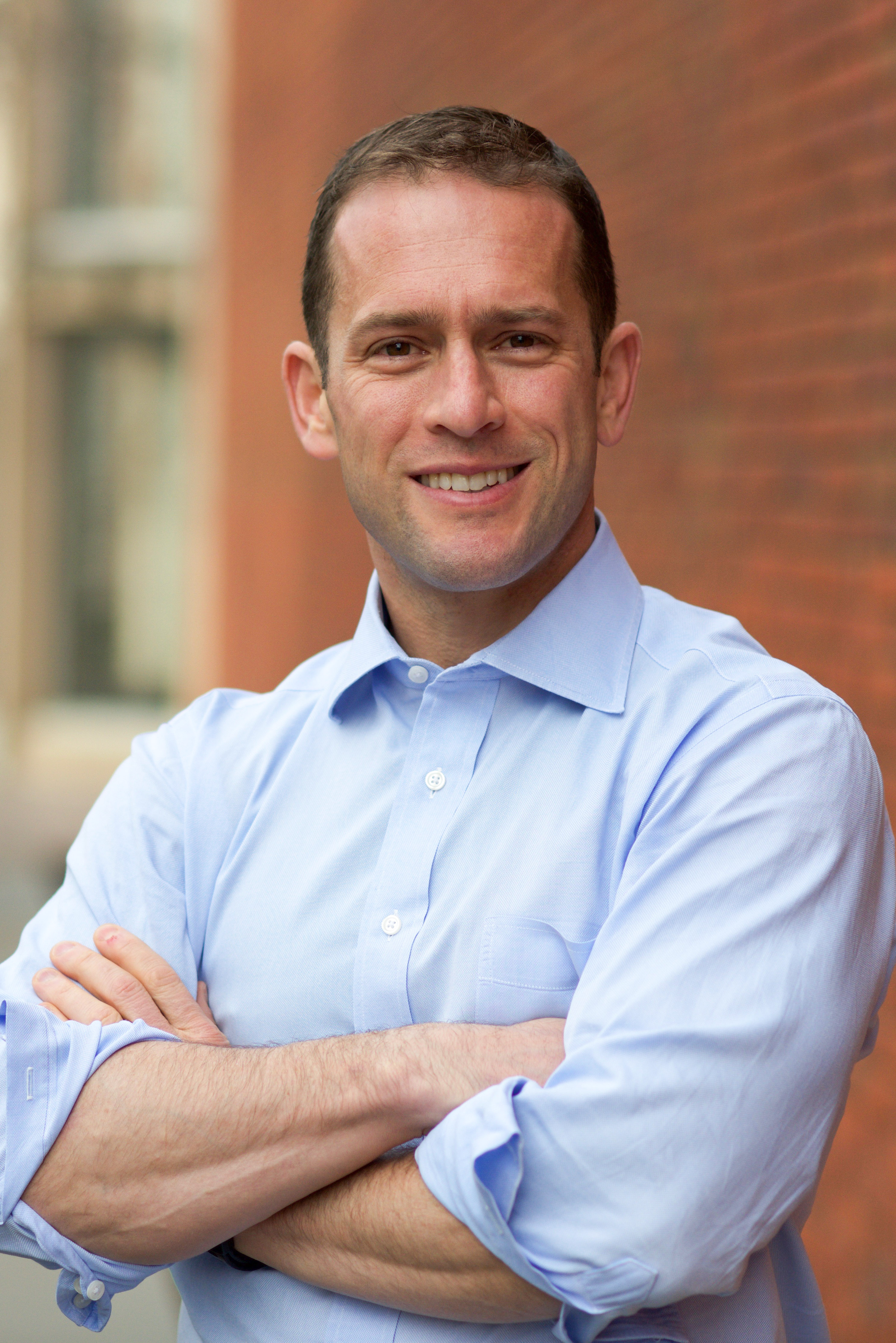
Jacob Shapiro
Jacob N. Shapiro is Professor of Politics and International Affairs
at Princeton University and co-founder of the
Empirical Studies of Conflict Project, a multi-university consortium that studies
politically motivated violence in countries around the world. His
research covers conflict, economic development, and misinformation. He is
author of The Terrorist’s Dilemma:
Managing Violent Covert Organizations and co-author of Small Wars, Big Data: The Information Revolution in Modern Conflict.
His research has been published in broad range of
academic and policy journals as well as a number of edited volumes. He has conducted
field research and large-scale policy evaluations in Afghanistan, Colombia,
India, and Pakistan. Shapiro received the 2016 Karl Deutsch Award from the
International Studies Association, given to a scholar younger than 40, or
within 10 years of earning a Ph.D., who has made the most significant
contribution to the study of international relations. He is a veteran of the
United States Navy.
James Gagliano
Elected on March 16, 2021, Mr. Gagliano was
installed as the Village’s 29th mayor, after serving one term as a Village
trustee. His professional pursuits include serving as a law enforcement analyst
and policing methodology subject matter expert in the media, where he provides
on-air analyses of complex law enforcement and counterterror matters. An
adjunct assistant professor and doctoral candidate at St. John’s University in
Queens, New York, he is a sought-after speaker on criminal justice, homeland security,
police use of force, and organizational leadership matters, and delivers
keynote addresses for corporate clients and in academic settings.
A 1987 graduate of the United States Military
Academy at West Point, he was commissioned as a U.S. Army Infantry Officer,
serving as a light infantry platoon leader and company executive officer in the
2nd Brigade of the 10th Mountain Division, while stationed at Fort
Benning, GA, and Fort Drum, NY, between 1988 and 1991. He earned an M.P.S. in
Homeland Security and Criminal Justice Leadership from St. John’s University in
2017.
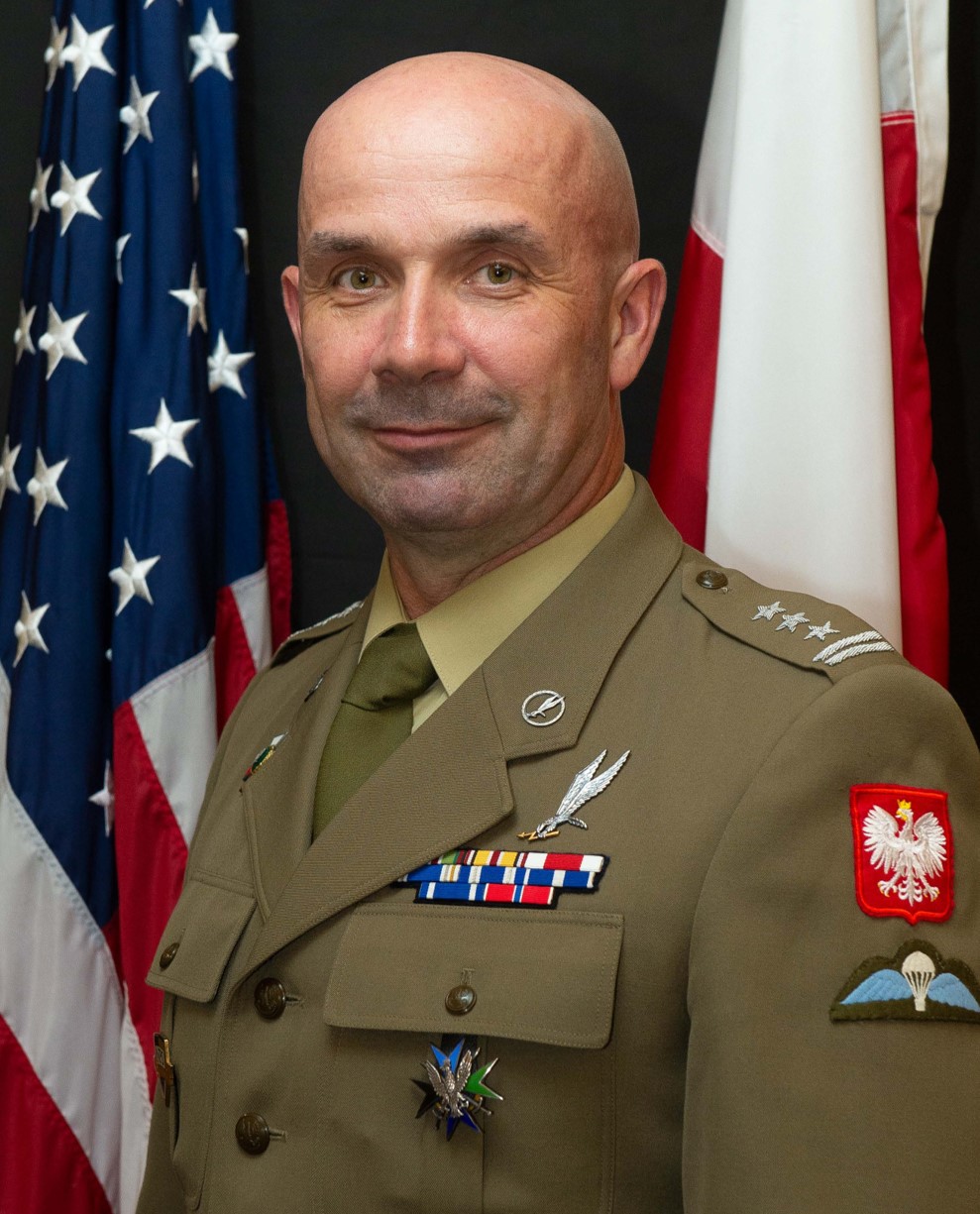
Jaroslaw Jablonski
Colonel Jaroslaw Jablonski has been a member of the Polish Special Forces since 2002. COL Jablonski received his MA in defense analysis from the US Naval Postgraduate School (NPS) in 2009 and a PhD in information and knowledge management in 2012. COL Jablonski has a combined more than 40 months of deployment time to Balkans, Operation Iraqi Freedom, and Afghanistan in support of the ISAF. At present he serves as POLSOF Exchange Officer in USSOCOM.
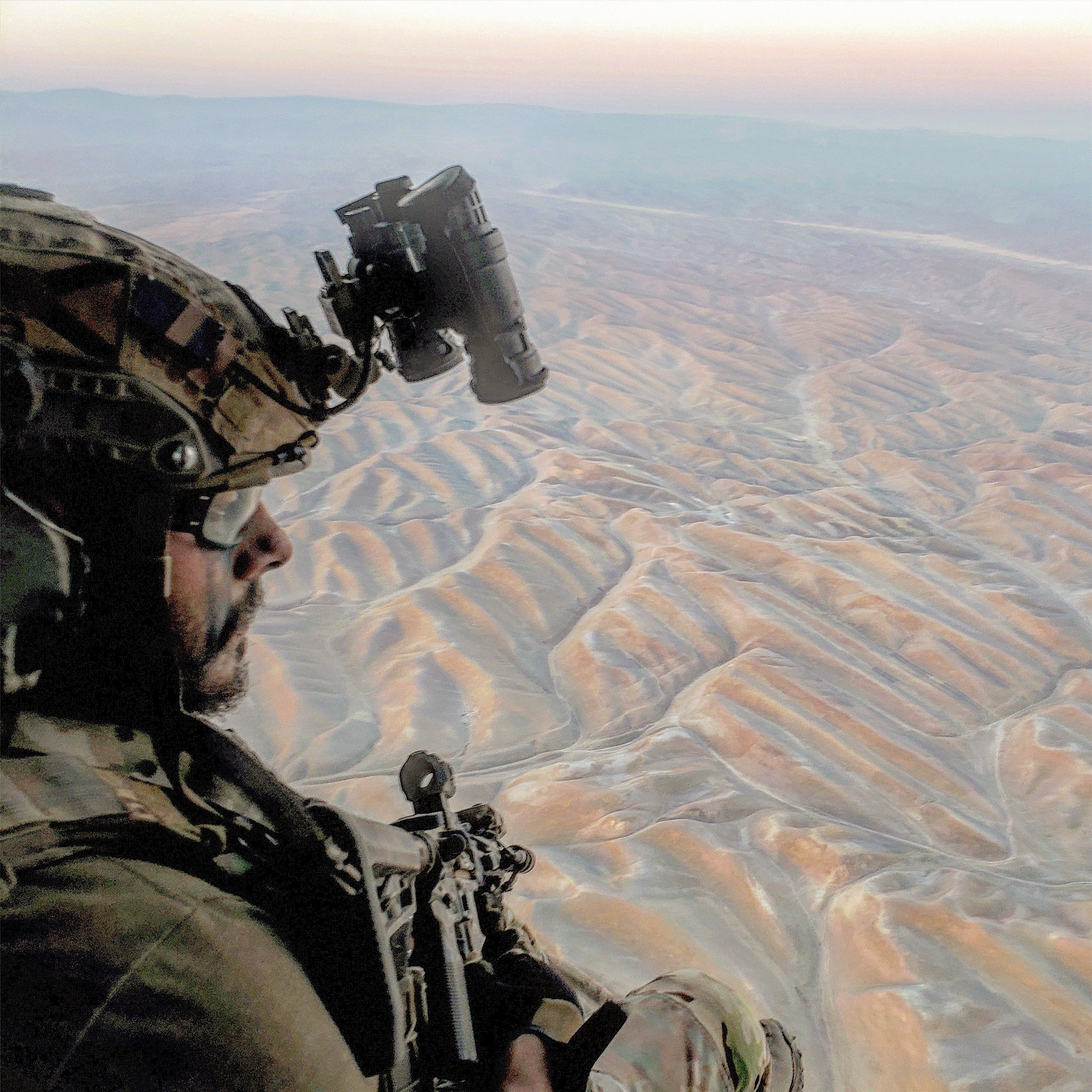
Jarrid Johnson
Sergeant
First Class Jarrid Johnson is the senior enlisted advisor for the Modern War
Institute at West Point. He is an instructor for MS200 Fundamentals of Small
Unit Operations. SFC Johnson is also the non-commissioned officer-in-charge and
dive supervisor for the USMA Maritime Assessment Course for cadets attending
Special Forces Combat Diver Qualification Course (CDQC). SFC Johnson was
assigned to an Operational Detachment Alpha as a senior weapons sergeant and
combat dive supervisor. He deployed with the detachment to Afghanistan in
2017-2018 and 2019 in support of Operation Freedom’s Sentinel. He also deployed
to Latvia in 2021 in support of Operation Atlantic Resolve.
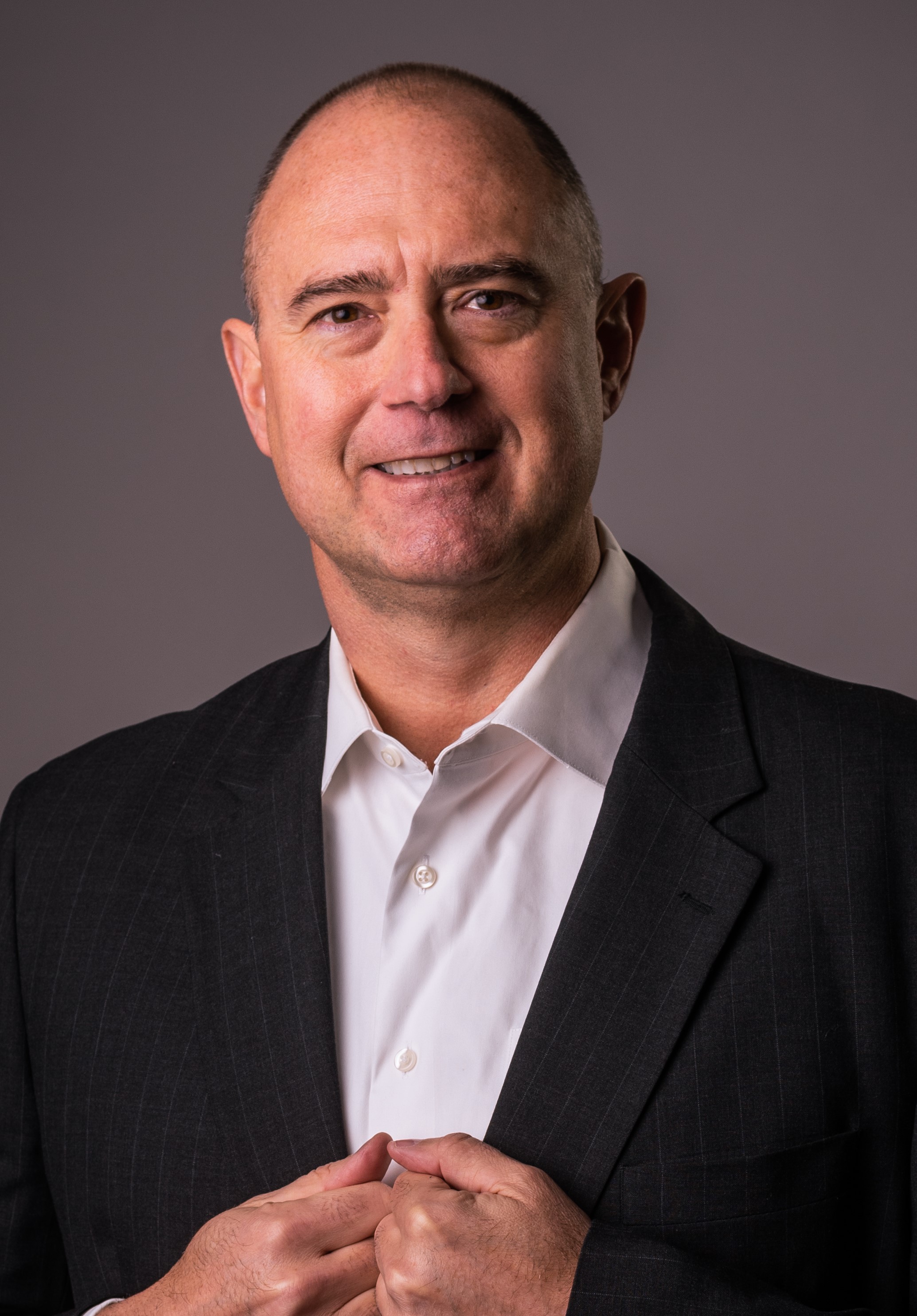
John Melkin
Mr. John Melkon is the Director of the Center for the
Study of Civil-Military Operations and an Assistant Professor at the United
States Military Academy. In this capacity he is responsible for facilitating
the coordination, planning and execution of the strategic vision and mission
for the Center and education of cadets, faculty and the community of practice.
He is the Course Director for the Geography of the Middle East and North
Africa, and the Geography of Sub-Saharan Africa as well as a Civ-Mil Ops
Colloquium. Before assuming his position at West Point, Mr. Melkon served as a
Senior Operations Advisor to the United States Army Africa in Vicenza, Italy
from 2009 to 2012 and service to OPERATION ODYSSEY DAWN. He was also a Strategic
Operations Officer for the Department of Defense from 2006 to 2009 with service
to OPERATION ENDURING FREEDOM. He is a retired Army Special Forces Officer with
tours in Europe, Africa, SE Asia, the Middle East and multiple combat tours in
Afghanistan. He has been awarded the
Ranger Tab, the Special Forces Tab, the Combat Infantry Badge and the Global
War on Terror Expeditionary Medal. Before re-entering public service Mr. Melkon
worked as an International Banking Associate for Credit Suisse First Boston in
Frankfurt, Germany. He holds an AB History from Princeton, an MA European
Politics and Certificate of Professional Achievement in Enterprise Risk
Management from Columbia, and an MBA from the Lowry Mays School of Business
along with an MAIA from the Bush School of Government & Public Service at
Texas A&M. He enjoys competing in endurance events and completed Ironman
Indian in 2021.
Joshua Rudd
Major General Joshua M. Rudd most recently served
as the Deputy Commanding General - Operations for the
25th Infantry Division at Schofield Barracks, Hawaii. In this
role, he oversaw 29,000 soldiers, family members, retirees,
civilians and contractors. He provided operational oversight
for the planning and execution of current and future
operations, training, contingency response requirements,
readiness exercises, and Theater Security Cooperation
Plans in support of the USINDOPACOM Commander's
objectives. His other flag assignment includes Deputy
Commanding General, 1st Special Forces Command
(Airborne).
Brigadier General Rudd was born in Southern California and
grew up in South Carolina. He graduated from Furman
University in 1993 after earning his comission through ROTC.
He entered active duty as a Quartermaster Officer, and in 1996 he successfully completed
Special Forces Assessment and Selection. As a Special Forces Officer he has commanded
at every echelon - from ODA to Group. Most recent Command Assignments include:
Commander JIATF-NCR (2017-2018), Commander of a Forward Deployed Combined
Joint Special Operations Task Force (2017-2018), and Commander 3rd Operations Support
Group (2015-2017), Commander of a Forward Deployed Combined Joint Task Force
(2015-2017). Brigadier General Rudd has deployed in support of multiple combat operations
including to Afghanistan for Operation Enduring Freedom, and Iraq and Jordan for Operation
Iraqi Freedom, Operation New Dawn, and Operation Inherent Resolve.
Brigadier General Rudd has completed the following military schools: US Army War College -
Fellowship at Duke University, Naval Command and Staff College, Infantry Officer Advanced
Course, and Quartermaster Officer Basic Course. He holds a M.A. in Strategy and National
Security from the Naval War College and a B.A. in Political Science from Furman University.
He is authorized to wear the following awards and decorations: Defense Superior Service Medal
(2nd award), Legion of Merit (3rd award), Bronze Star Medal (3rd award), Combat Infantryman
Badge, Special Forces Tab, Ranger Tab, Military Free Fall Jumpmaster Badge and Combat
Diver Supervisor Badge.
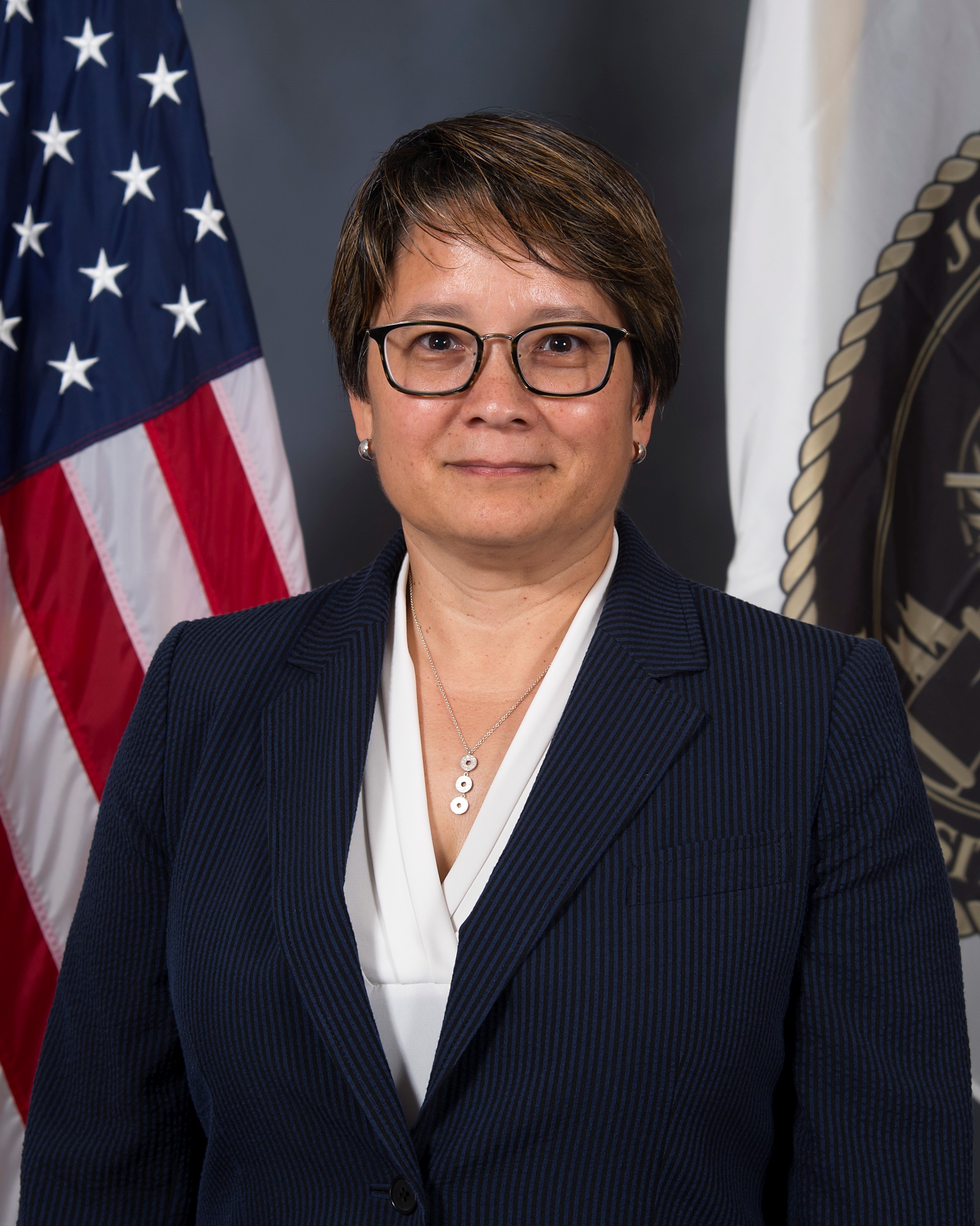
Kari Thyne
Dr. Kari Thyne served in the US Air Force for 20 years as an aircraft maintenance and munitions officer. Her experience includes command of a C-5 aircraft maintenance squadron at Dover, Delaware, before and after the terrorist attacks of 11 September 2001, as well as shop and flight line aircraft maintenance experience on C-130 and C-141 aircraft. She was also a conventional munitions maintenance flight commander and munitions accountable supply officer (MASO) for the Air Force’s largest conventional munitions stockpile.
She served in the Pentagon on the Air Staff, the Joint Staff, and in the immediate office of the 16th Chairman of the Joint Chiefs of Staff. She recently worked in the RAND Corporation’s Washington office supporting Project AIR FORCE’s Strategy and Doctrine Program.
Within academic environs, Dr. Thyne taught biomedical ethics and formal logic at the Northern Virginia Community College-Annandale Campus and military ethics at the US Air Force Academy.
She holds a doctorate of liberal studies from Georgetown University, a master of arts in philosophy from The Ohio State University, a master of science in educational leadership from Troy State University, and a bachelor of science from the US Air Force Academy.
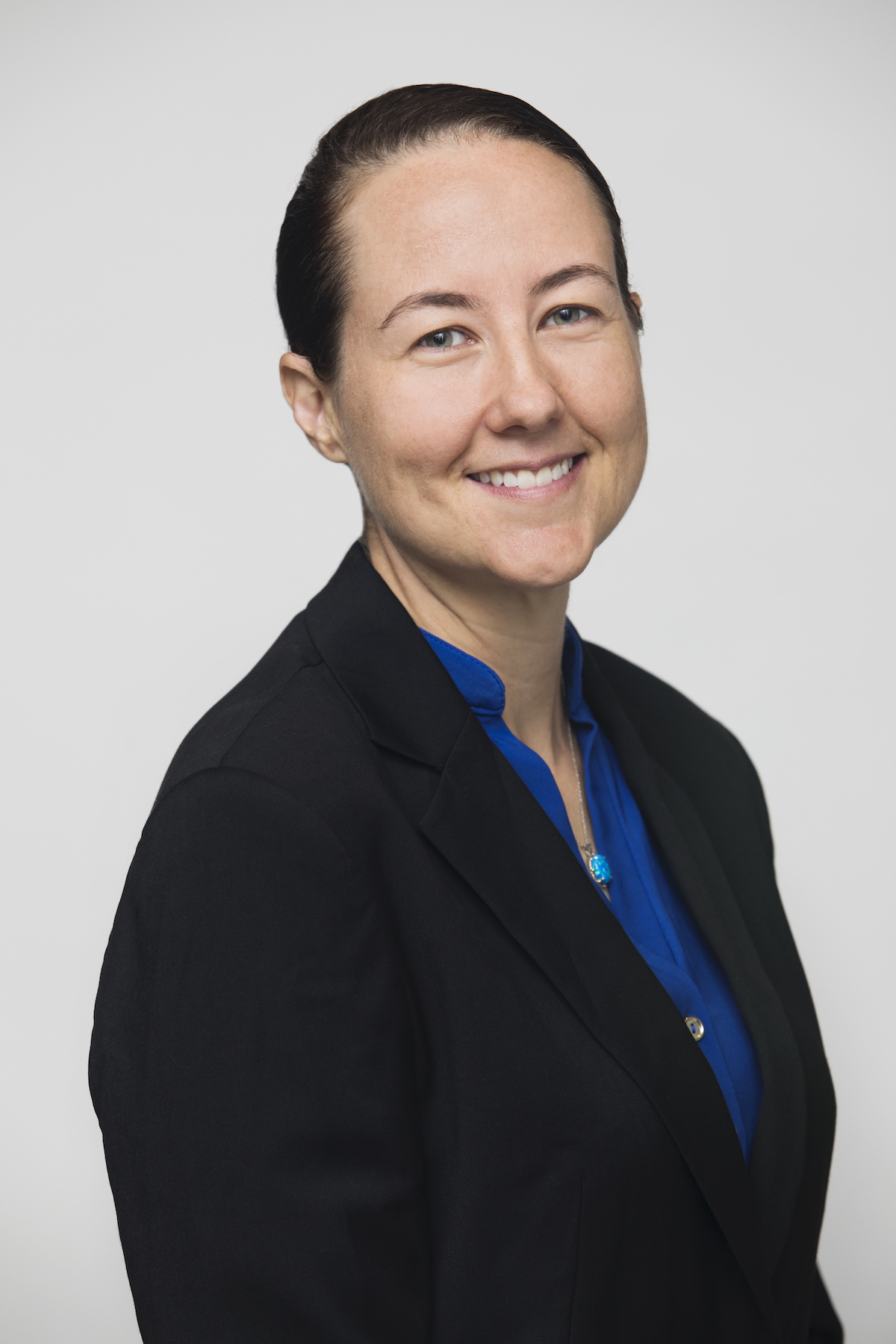
Kate Nelson
MAJ Kate Nelson is the National Media Manager for the Army
Enterprise Marketing Office (AEMO) which includes Linear Video, Streaming
Video, Programmatic Online Video, Sports, Entertainment, Esports, Gaming,
Digital Direct, Streaming Audio, Paid Social, Custom Content and Print
media. As a Military Intelligence
officer she most recently served as the US Army Pacific G2 Battle CPT where she
was responsible for tracking the integration and execution of intelligence
operations across the Pacific theater. She served as the Bravo Company
Commander in the 715th MI BN where she was responsible for timely
and relevant Signal Intelligence in support of NSA-Hawaii. She served as a
targeting and reconnaissance officer for unmanned aircraft supporting Joint
forces, Special Operations, and multinational forces. She served as the 82nd Aviation 1st
BN S2 deploying to Afghanistan in support of combat operations. She began her
career as an enlisted Radio Operator with 5th Special Forces Group
deploying multiple times with the Combined Joint Special Operations Task Force
throughout Iraq. MAJ Nelson will complete her Doctorate in Business
Administration from Temple University this summer focusing on digital fan
engagement. She holds two Master’s degrees, Master of Military Studies and
Master of Sport Management.
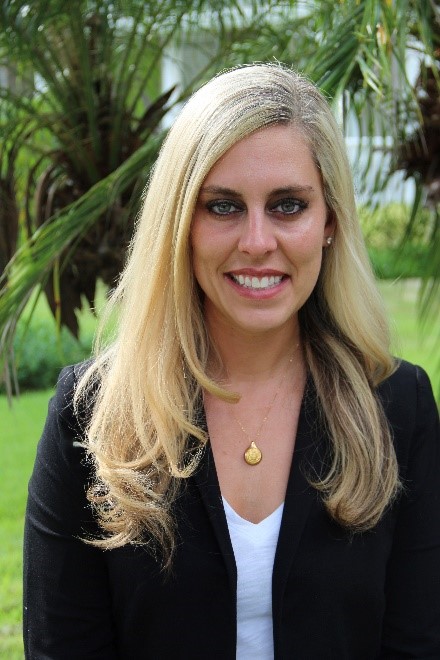
Katie Crombe
Lt Col Katie Crombe has served in a variety of
strategy and planning roles across the Middle East and currently serves at U.S.
Special Operations Command Central as the Director of Strategy and Plans. Prior
to this assignment, Katie served at U.S. Central Command, where she led a
planning team charged with the D-ISIS campaign plan within the strategy and
plans directorate prior to being selected as the CENTCOM commander’s
aide-de-camp. Katie also spent three years working at the U.S Embassy in Amman,
Jordan overseeing bilateral, coalition, and interagency plans, culminating with
serving as the planning adviser to the Jordanian Chief of Defense for the Syria
crisis and initial operations to combat ISIS along the Jordanian border.
Katie also served as an exchange officer in the United Kingdom’s Operational
Headquarters, leading the team in development of a new U.K. theater strategy
for the Middle East.
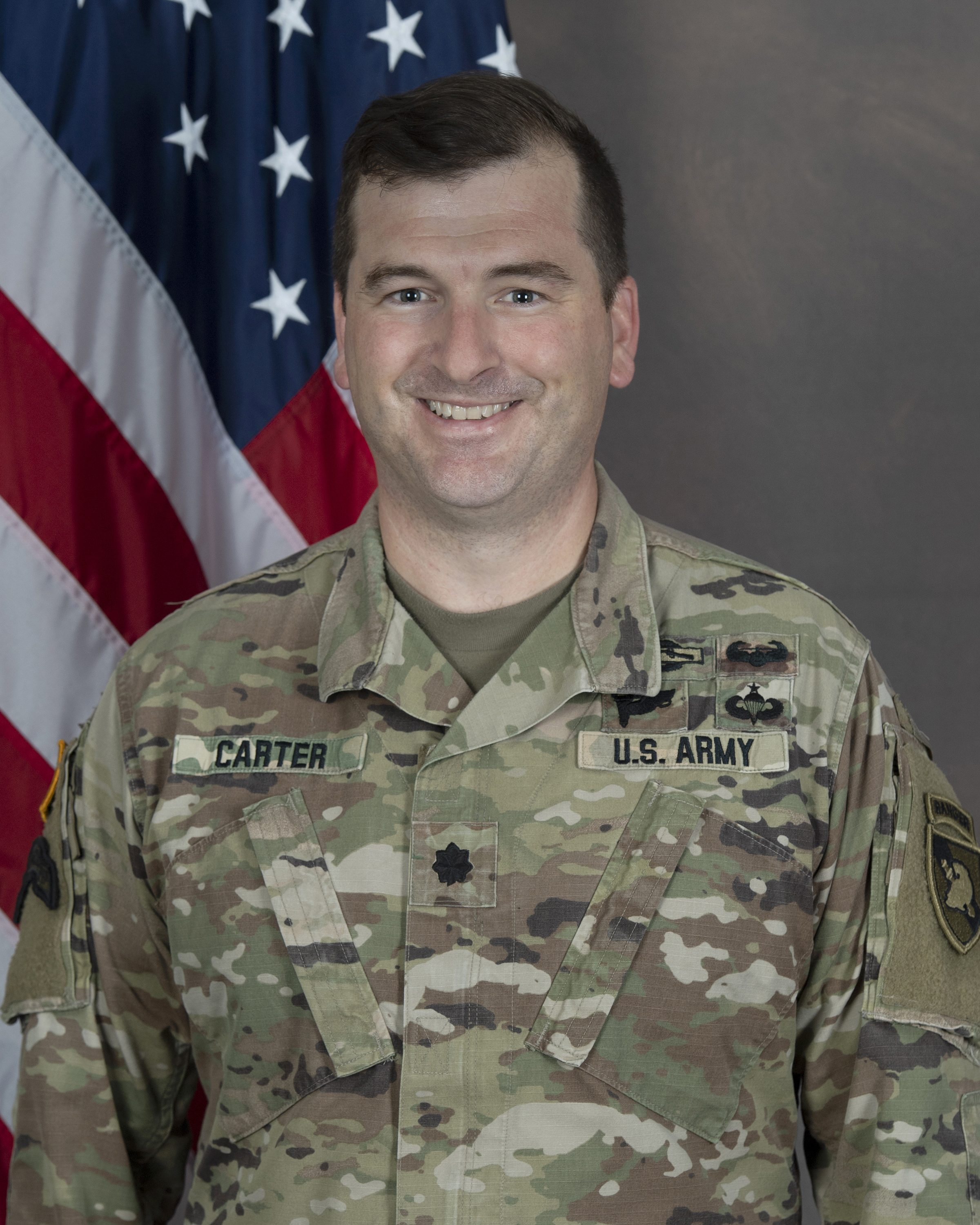
Keith Carter
Lieutenant Colonel (LTC) Keith Carter is a United States Army officer currently stationed at the United States Military Academy at West Point, where he serves as the Director of the Defense and Strategic Studies Program. Keith’s last operational assignment was at Fort Bragg where he served as a strategic planner in the Joint Special Operations Command. Prior to that Keith Commanded 1-26 IN at Fort Campbell, Kentucky. Over the course of his career, Keith has served in a variety of infantry formations including the 101st ABN DIV, the 2nd Infantry Division, the 75th Ranger Regiment, and the 4th Infantry Division.
Keith earned his Doctorate in Political Science from the University of
Pennsylvania; his research interests include technology and strategy,
civil-military relations, the role of arms trades in alliance formation, and information
age war.
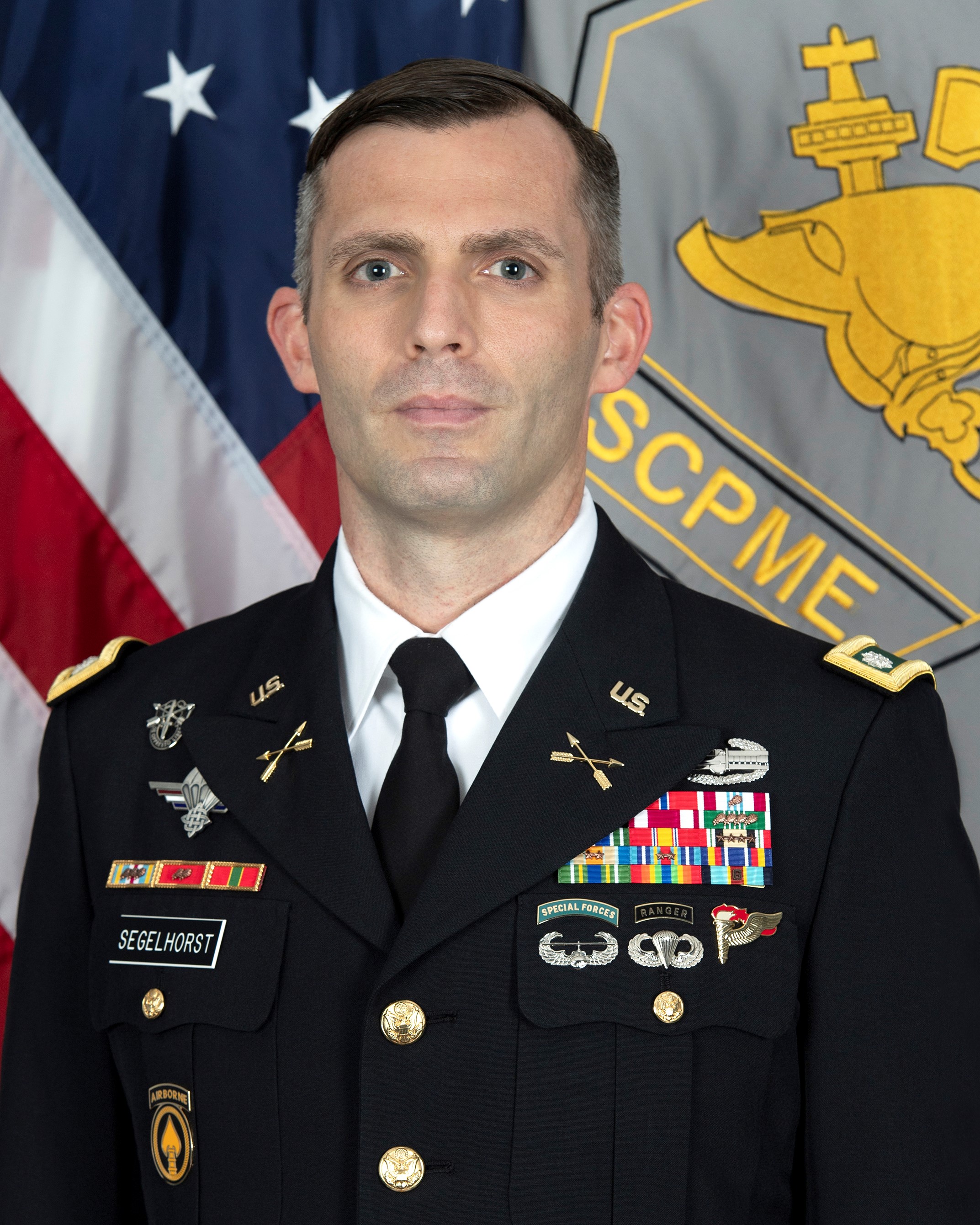
Ken Segelhorst
Lieutenant Colonel Ken Segelhorst is a U.S. Army Special Forces officer
and information operations practitioner. He is currently assigned to the Simon
Center for the Professional Military Ethic at the United States Military
Academy at West Point. Ken serves as the course director for MX400:
Officership, the Superintendent’s capstone course. In his previous assignment,
Ken served as a joint information operations officer and cross-functional team leader
with Joint Special Operations Command. His operational experience includes numerous
deployments to the Middle East and Africa. Ken’s interagency experience
includes assignments to U.S. embassies in Baghdad, Iraq, and Bangui, Central
African Republic. He is also a non-resident fellow with the Simons Center for
Ethical Leadership and Interagency Cooperation at Fort Leavenworth.
Ken Tovo
Lieutenant General (Ret.) Ken Tovo retired from the U.S.
Army in 2018 with 35 years of service. A career Green Beret, he commanded at
every level in the 10th Special Forces Group. He commanded SOCCENT, the Nato
Training Mission in Afghanistan, was the deputy at U.S. Southern Command and commanded
the U.S. Army Special Operations Command. Ken was the 3rd Battalion, 10th
Special Forces Group Commander, working with the PUK before and during
Operation Iraqi Freedom.
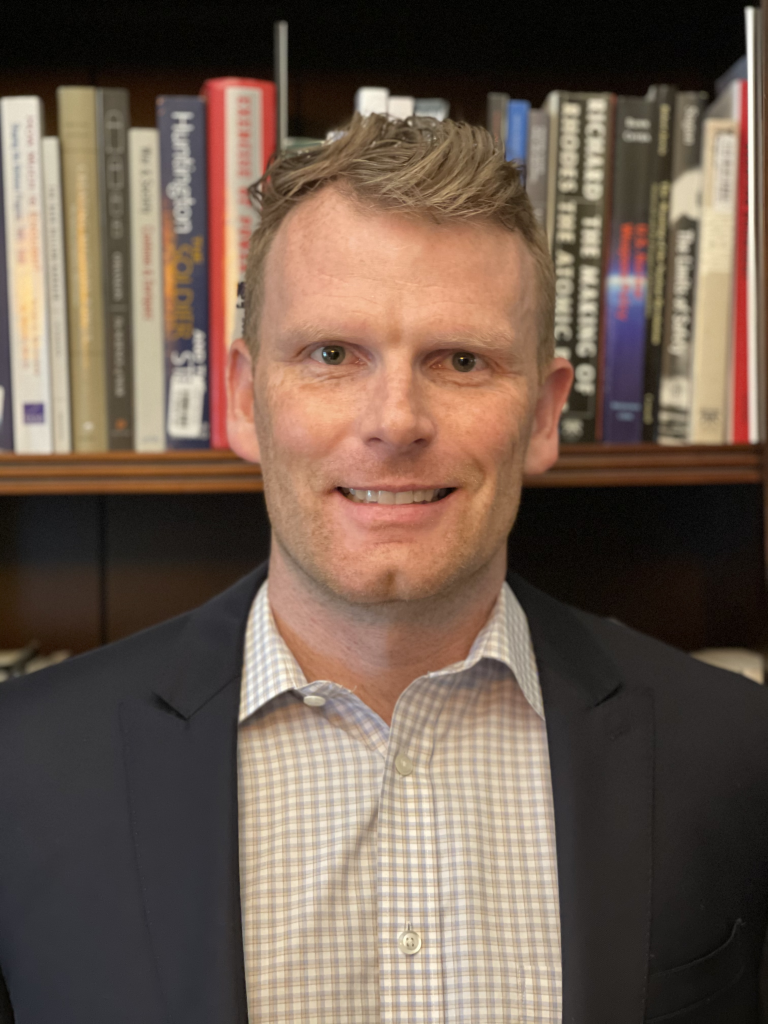
Kyle Atwell
MAJ Kyle Atwell is an instructor in the Social Sciences
Department at West Point and the founder and Chair of the Irregular
Warfare Initiative, a joint venture between the Modern War
Institute at West Point and the Empirical Studies of Conflict Project at
Princeton University. His operational experience includes assignments in
North and West Africa, Afghanistan, South Korea, and Germany. As a civilian, he
has also held positions at NATO Headquarters in Brussels, the United
States Mission to the United Nations, and worked for two California state
legislators. Kyle is currently a nonresident senior fellow in
the Forward Defense practice of the Atlantic Council’s Scowcroft
Center for Strategy and Security and a Council on Foreign Relations term
member. He was previously a Center for a New American Security Shawn
Brimley Next Generation National Security Leaders fellow and a fellow
at the Princeton Center for International Security Studies. Kyle received
B.A. degrees in both Economics and International Relations
from the University of California at Davis (2006), a M.A. in Public
Affairs from Princeton University (2021), and is currently a Ph.D.
Candidate in Security Studies at Princeton University.
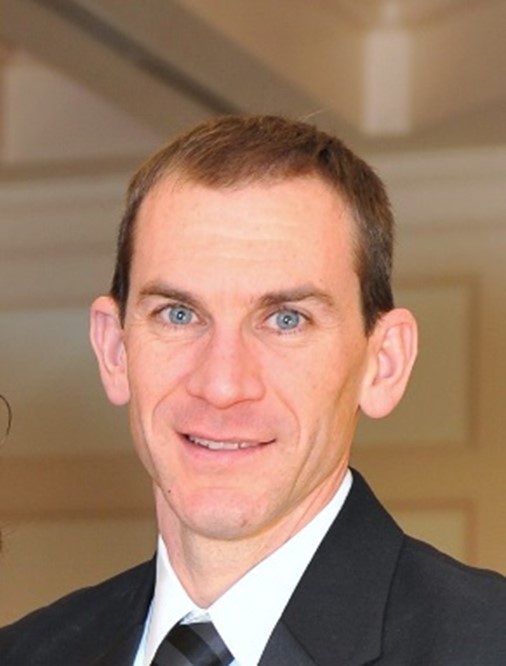
Liam Collins
Liam Collins is a retired U.S. Army Special Forces colonel who conducted
operational deployments to Afghanistan, Iraq, South America, the Horn of
Africa, and Bosnia. He was the founding director of the Modern War Institute at
West Point, former director of the Combating Terrorism Center at West Point, a
fellow at New America, and a permanent member with the Council on Foreign
Relations. Collins’ work has been cited by the assistant to the president for
homeland security and counterterrorism, the White House press secretary, the
New York Times, the Associated Press, CNN, ABC News, Fox News, NPR, the Wall
Street Journal, and USA Today. He is co-editor of the Routledge Handbook of U.S
Counterterrorism and Irregular Warfare Operations and holds a PhD from
Princeton University.
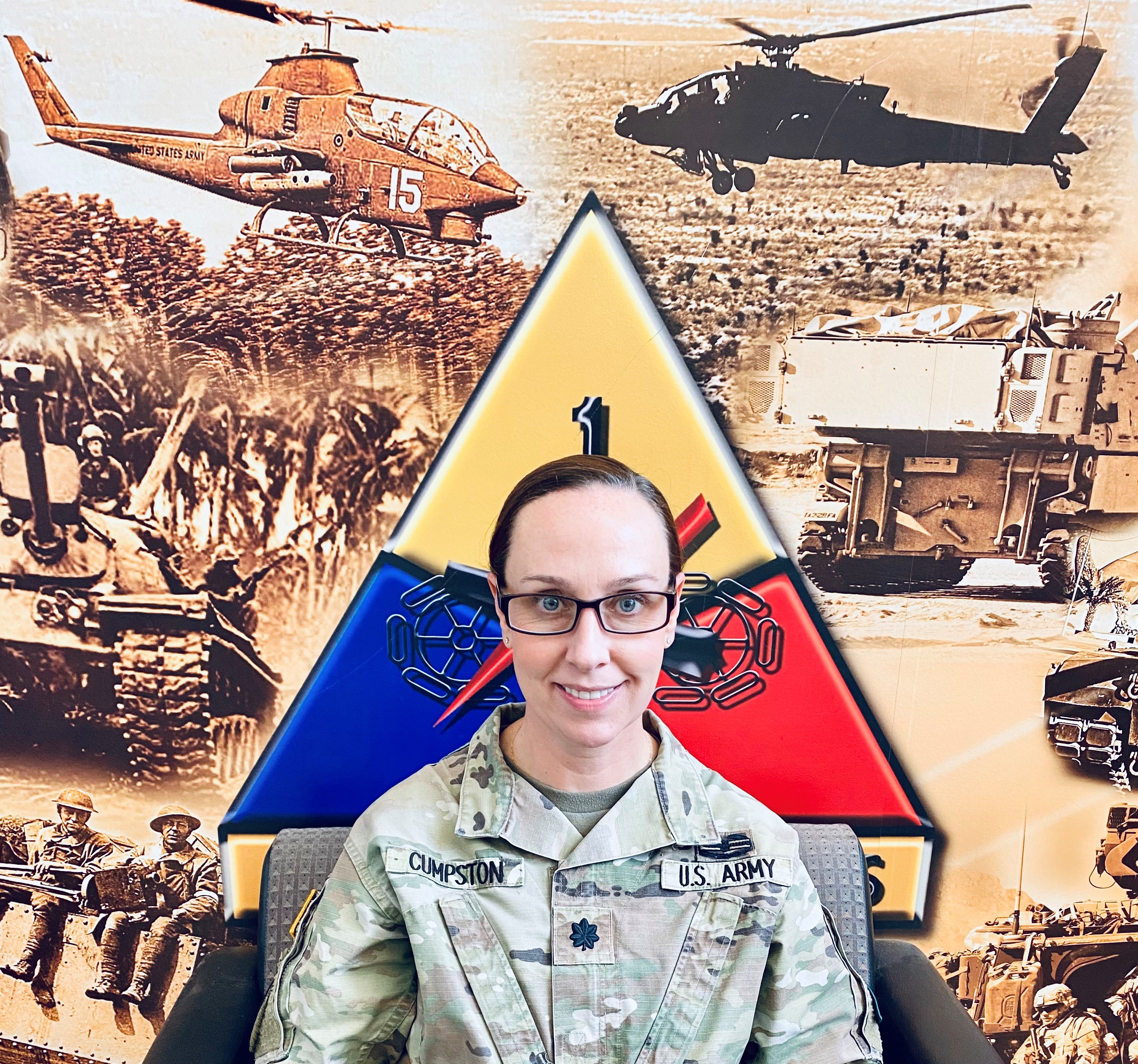
Meghan Cumpston
Lieutenant Colonel Meghan
Cumpston is the Assistant Chief of Staff – G2, 1st Armored Division.
LTC Cumpston received her bachelor’s degree in Political Science from Villanova
University in 2003, and completed her Masters in International Relations and
International Economics from the Johns Hopkins School of Advanced International
Studies in 2013. LTC Cumpston was recently selected as a Goodpaster Scholar and
will pursue a PhD upon completion of her assignment as the 1st
Armored Division G2. LTC Cumpston served in multiple Army and joint command and
staff appointments, including five years assigned to the Joint Special
Operations Command Intelligence Brigade (JIB). LTC Cumpston previously taught
in the Department of Social Sciences at the United States Military Academy, and
is a 2009 recipient of the General Douglas MacArthur Leadership Award.
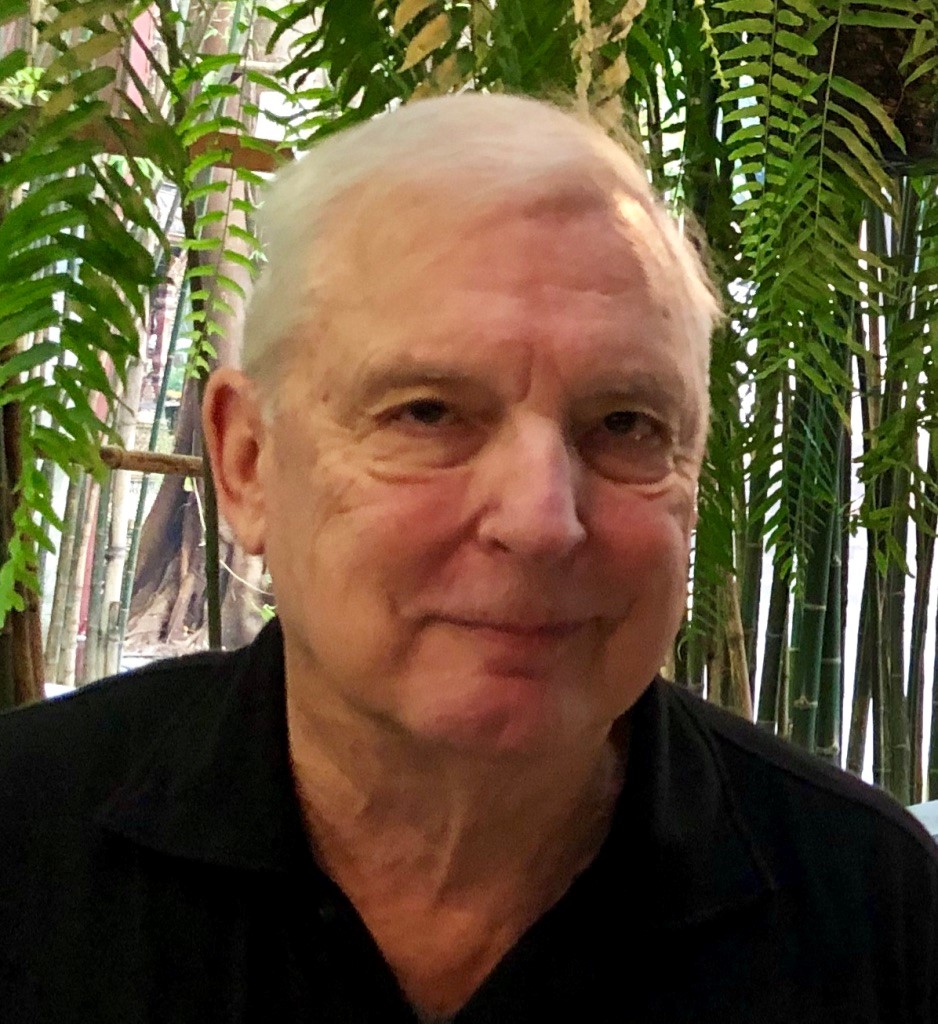
Michael Eiland
Graduated from USMA in 1961, commissioned Field Artillery. Special Forces 1965-75
(7th, 5th, 1st Special Forces Groups and MACVSOG). OSD 1975-77. Detailed to
Department of State and US Embassy Bangkok 1978-83. DIA 1984. Retired 1985. CIA
1985-2003, primarily in Southeast Asia (Chief of Station, Chief of Base, Chief of
Platform, etc). Independent contractor 2004-present. BS USMA, MA Georgetown
University, PhD George Washington University. Resides in Arlington, VA.
Michael Harris
Colonel Michael Harris is a leading irregular warfare
practitioner and scholar. He’s led special operations teams conducting
integrated deterrence, support to resistance, unconventional warfare, hostage
recovery, counterterrorism, counterproliferation, counter-narcoterrorism, and
joint forcible entry operations. He’s completed studies at National
Defense University, U.S. Army War College, Columbia University, and Harvard
University. His scholarly work on deterrence of hybrid warfare while an
Army War College Fellow was lauded by senior faculty from Columbia
University. His PhD dissertation analyzes Russian and Chinese
appropriation of resistance methods in gray zone campaigns. He is
currently working on a book titled, “The Love of War.”
Michael Kelvington
Lieutenant
Colonel Michael Kelvington was born and raised in Akron, Ohio. He
graduated from the United States Military Academy at West Point in May 2005
with a bachelor’s degree in American History and commissioned as a 2nd
Lieutenant in the Infantry. Upon completion of the Infantry Officer Basic
Course, Ranger School, and Airborne School, he was assigned to the 501st
Battalion (Airborne), 4th Brigade Combat Team, 25th Infantry Division at Fort
Richardson, Alaska, where he served as an Airborne Rifle Platoon Leader. In
2008, LTC Kelvington was assigned to 1st Ranger Battalion at Hunter Army
Airfield, GA where he served as a Ranger Platoon Leader and Ranger Company
Executive Officer. At the completion of the Maneuver Captain’s Career Course at
Fort Benning, Georgia in 2011, he was assigned to the 1st Battalion, 508th
Parachute Infantry Regiment, 4th Brigade Combat Team, 82d Airborne Division at
Fort Bragg, North Carolina where he assumed command of Battle Company in August
2011. In January 2013, he relinquished command and was assigned to 2nd Ranger
Battalion at Joint Base Lewis-McChord where he served first as the Battalion
Assistant Liaison Officer and then later as the Battalion Logistics Officer. In
April 2014, he was hand-selected to become the aide-de-camp of the Deputy
Commanding General of Joint Special Operations Command and returned to Fort
Bragg. After a year, LTC Kelvington was selected for the General Wayne A.
Downing Scholarship. In June of 2017, upon completion of ILE and grad school,
LTC Kelvington was assigned to the 75th Ranger Regiment for a third time,
serving as the Battalion Operations and Executive Officer of the Regimental
Special Troops Battalion at Fort Benning, GA.
During this time period, he also served overseas twice as a Joint Task
Force Commander. In June of 2019, LTC Kelvington became the Deputy Operations
Officer of the 75th Ranger Regiment, where he served as the Operations Officer
for a Joint Task Force in support of overseas contingency operations. He has deployed 14 times in support of
Operation Iraqi Freedom, Operation Enduring Freedom, and Operation Freedom’s
Sentinel. Following these assignments,
LTC Kelvington and his family moved to Columbus, Ohio where he now serves as
the Professor of Military Science and Leadership at The Ohio State University.
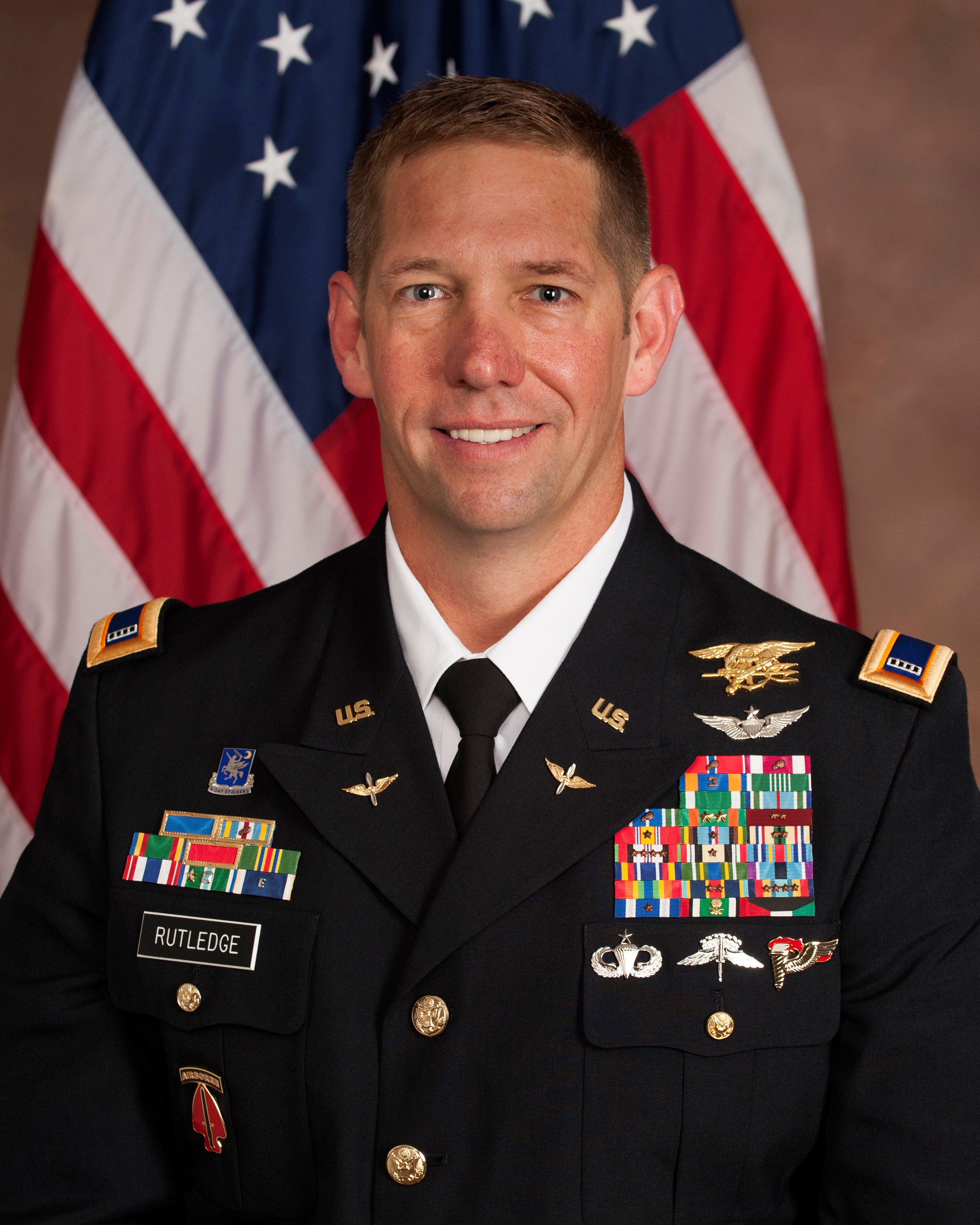
Michael Rutledge
Michael Rutledge originated
from Bettendorf, IA and enlisted in the U.S. Navy in March 1990. He served
three years as a helicopter rescue swimmer and graduated from Basic Underwater
Demolition/SEAL training in 1994. Assigned to SEAL Team ONE he completed 3
contingency deployments as an M-60 machine gunner, and air operations
specialist. Michael’s last assignment in the SEAL Teams was Course Director of
Air Operations at Naval Special Warfare Group One.
In 2002 upon returning from the initial assaults into Afghanistan, Mike transferred from the US Navy to the US Army to become a helicopter pilot with a direct follow-on assignment upon graduation to the 160th Special Operations Aviation Regiment. After 13 years of continuous combat operations, Michael was promoted to Chief Warrant Officer Four and assumed command of the Executive Flight Detachment and Aviation Department at the United States Military Academy at West Point. In May 2019, CW4 Rutledge retired after 30 years of active duty and combat operations in Desert Storm, Somalia, Iraq, and Afghanistan. He currently resides in Casa Grande, AZ as the CEO of Rutledge Airborne Applications providing wildland aerial firefighting capabilities and training. Michael and his wife Dena of 27 years have 2 children, Matthew and Joshua who is currently deployed as an Army Infantryman.
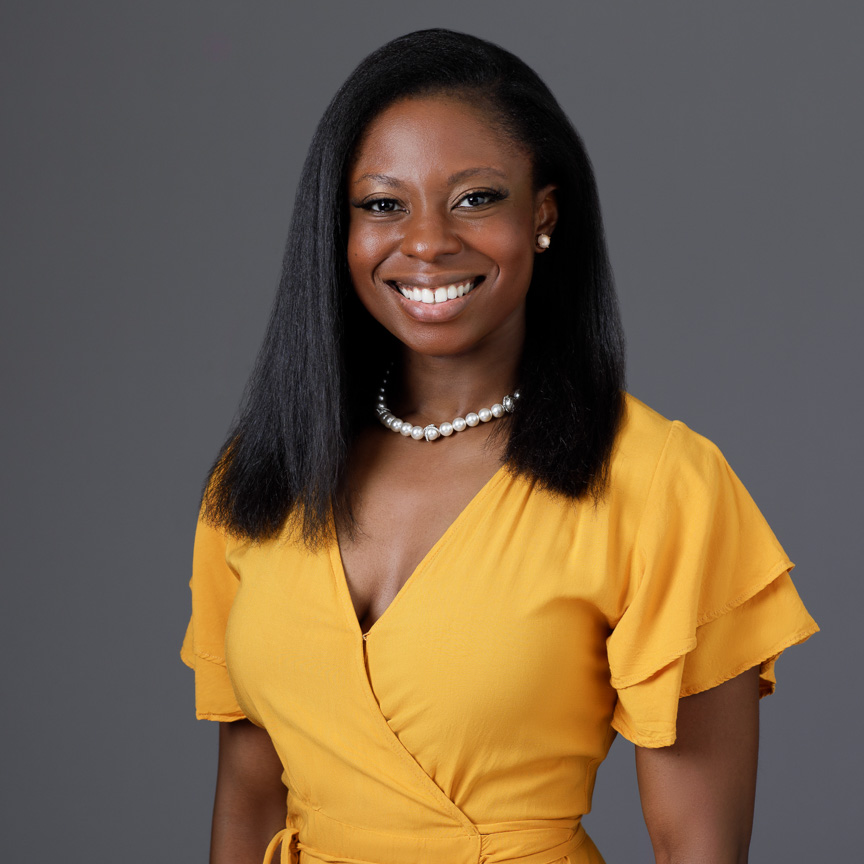
Moriamo Sulaiman-Ifelodun
CPT Moriamo
Sulaiman-Ifelodun currently serves as a Public Affairs Officer. As a
prior-service enlisted Imagery Analyst, her first unit and combat tour were
with 1st Special Forces Group (Airborne). As an experienced Military
Intelligence and Public Affairs Officer, Mo has a demonstrated history of
working across all ranks, echelons, and communities. Mo is a published author
and holds a Master's of Professional Studies in Public Relations &
Corporate Communications from Georgetown University.
Patrick Howelll
Col.
Patrick Howell is the assistant to the director of the Modern War Institute at
West Point. He is a career Engineer officer as well as Strategic/Operational
Planner and is currently a Chief of Staff of the Army Advanced Strategic Plans
& Policy Program Fellow. He has served in a variety of conventional and
special operations assignments and has conducted multiple deployments to
Afghanistan, Iraq, and Eastern Africa. He has graduated from several military
courses including Ranger School and the School of Advanced Military Studies.
Prior to assuming his current position as the Director of MWI, Patrick served
as the lead Strategic Planner at the Joint Special Operations Command,
Battalion Commander, and an Assistant Professor of International Relations in
the Department of Social Sciences at the United States Military Academy. He has
taught courses in International Relations, Comparative Politics, Politics &
Government of Europe, and Central European Security Studies. He has a
bachelor’s degree in International Relations from the United States Military
Academy, Master of Arts in Law & Diplomacy from the Fletcher School of Law
& Diplomacy, Master of Military Arts & Science from the School of
Advanced Military Studies, and PhD in Political Science from Duke University.

Peter Cloutier
Peter Cloutier is
the Joint Special Operations University Professor for Development and Human
Security. He is a career Foreign Service Officer in the United States
Agency for International Development (USAID) having served as Office Director
for programs in Afghanistan, Mozambique, Angola and Timor-Leste (East Timor).
He has devoted much of his Foreign Service career to developing innovative
strategies and advancing interagency partnerships in a range of technical
fields. He is a successful and skilled negotiator with host country
governments, in sector coordination bodies, and within the interagency. He has
a track record for leading teams to achieve ambitious results in multiple
technical areas. He is an accomplished writer and presenter, as evidenced by
authoring a USAID country strategy and presenting numerous interagency
proposals and presentations to senior USG decision makers. With nearly 20 years
overseas, he has demonstrated consistent leadership, accountability and impact.
USAID has recognized his sustained performance with three
Superior Honor Awards as a result.
Richard Clarke
General Richard D. Clarke currently serves as the 12th Commander
of U.S. Special Operations Command (USSOCOM) headquartered at MacDill Air Force
Base, FL.
Prior to assuming command of USSOCOM, General Clarke served as
Director for Strategic Plans and Policy (J5), Joint Staff, the Pentagon,
Washington, D.C.
General Clarke’s other assignments as a general officer include:
Deputy Commanding General for Operations, 10th Mountain Division from 2011 to
2013; the 74th Commandant of Cadets, United States Military Academy at West
Point from 2013 to 2014; and the Commander of the 82nd Airborne Division.
His formative and key, Army and special operations, assignments
include: Director of Operations, Joint Special Operations Command from 2009 to
2011. Eight years in the 75th Ranger Regiment first as a company commander,
then as a battalion commander, and finally as the regimental commander. He also
served as commander of 3rd Battalion, 504th Parachute Infantry Regiment, 82nd
Airborne Division.
General Clarke has led Soldiers at all levels in Airborne,
Ranger, Mechanized and Light Infantry units in five different divisions, the
173rd Airborne Brigade, and the 75th Ranger Regiment in the United States,
Europe, Iraq and Afghanistan. His deployments while serving in the aforementioned
positions include Operations Desert Shield and Desert Storm, Operation Joint
Guardian in Macedonia, three deployments in support of Operation Enduring
Freedom, four deployments in support of Operation Iraqi Freedom, and one
deployment as the commander of the Combined Joint Forces Land Component Command
- Operation Inherent Resolve.
General Clarke was born in Germany and raised in an Army family.
He is a graduate of the United States Military Academy at West Point, NY, and
was commissioned into the Infantry in 1984. He holds a Bachelor of Science
degree from West Point and a Master of Business Administration from Benedictine
College. He is a distinguished graduate of the National War College earning a
master's degree in Security and Strategic Studies.
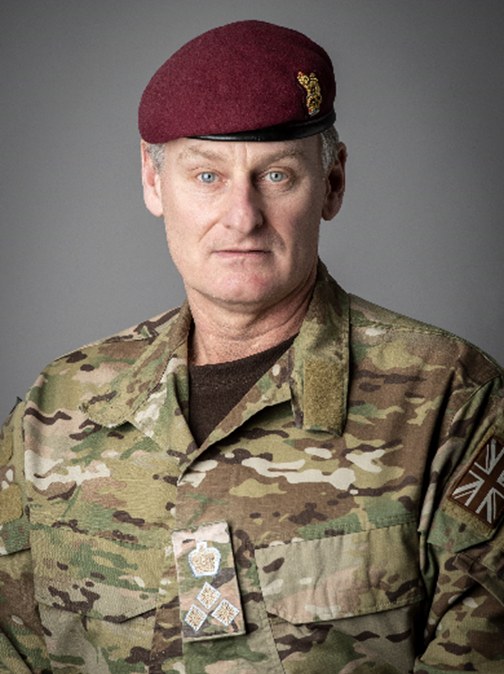
Rob Stephenson
Brigadier Rob Stephenson
commissioned into The Parachute Regiment in 1987. During his career he has deployed on numerous
operational tours in Northern Ireland under Op BANNER and also on various
overseas operations both with the Parachute Regiment and with other units
including to Bosnia, North Macedonia, Iraq and Afghanistan. As a staff officer, he has fulfilled a
variety of roles within the UK’s Ministry of Defence and the Foreign and
Commonwealth Office. In 2009 he was made an Officer of the Order of the British
Empire (OBE) for his unit command appointment which included operational
deployments to Afghanistan and North Africa. He has been the Deputy Commander
of NATO Special Operations Headquarters since August 2018. Brigadier Rob holds
a Masters Degree in Defence Studies from Kings College London. He is married
and has two sons.
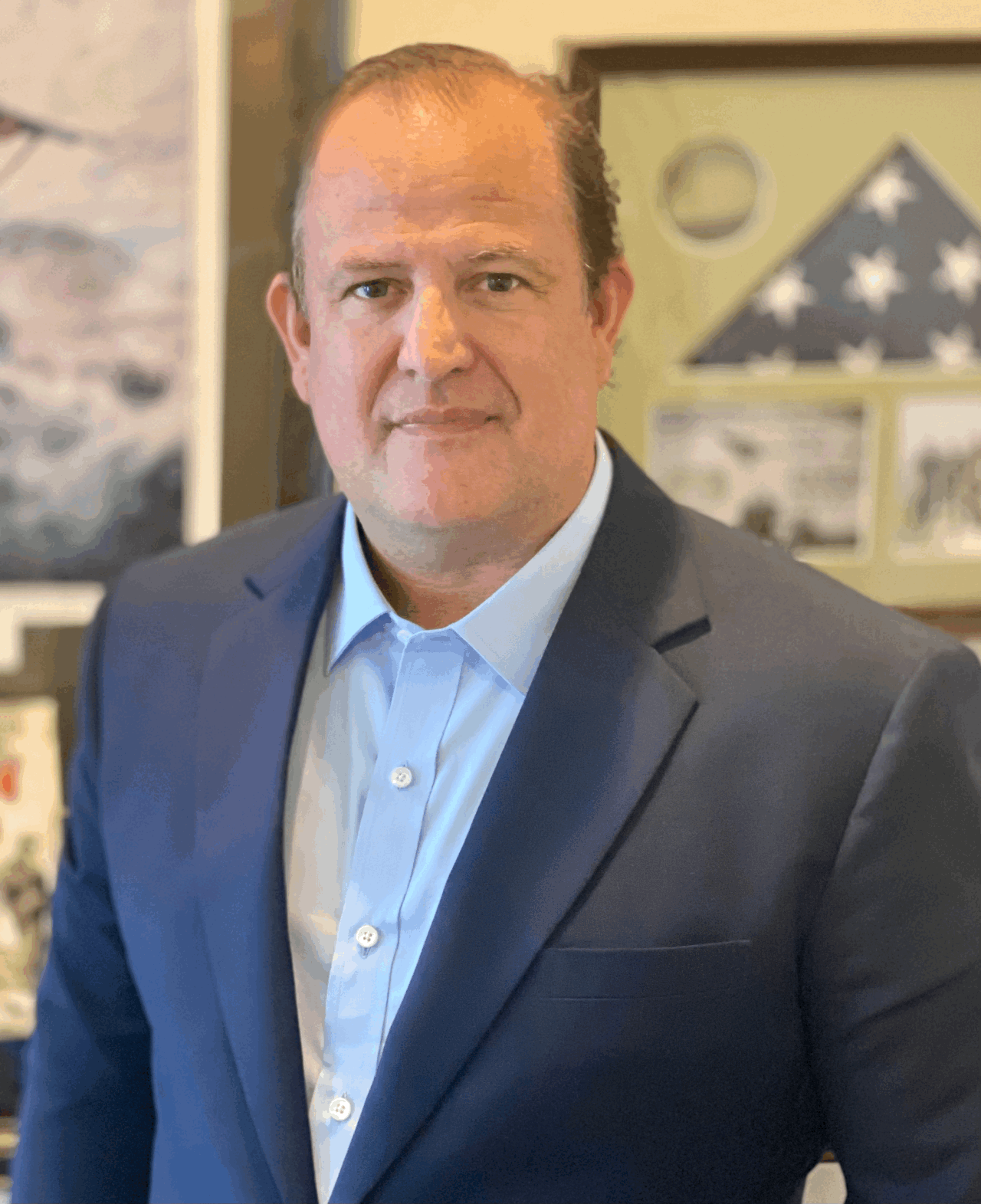
Robert Burrell
Dr. Robert S. Burrell is a military historian and professor of irregular warfare at Joint Special Operations University. Previously, he taught military history at U.S. Naval Academy. He is also the former editor-in-chief of special operations doctrine.
A
retired Marine with combat experience, Dr. Burrell is an Asia-Pacific expert
with 12 years living and working in Japan, Korea, Philippines, and Thailand, as
well as a diplomatic tour at the U.S. Embassy in Australia.
He is married to Carmen Burrell and has three boys Alex, Max, and Ben.
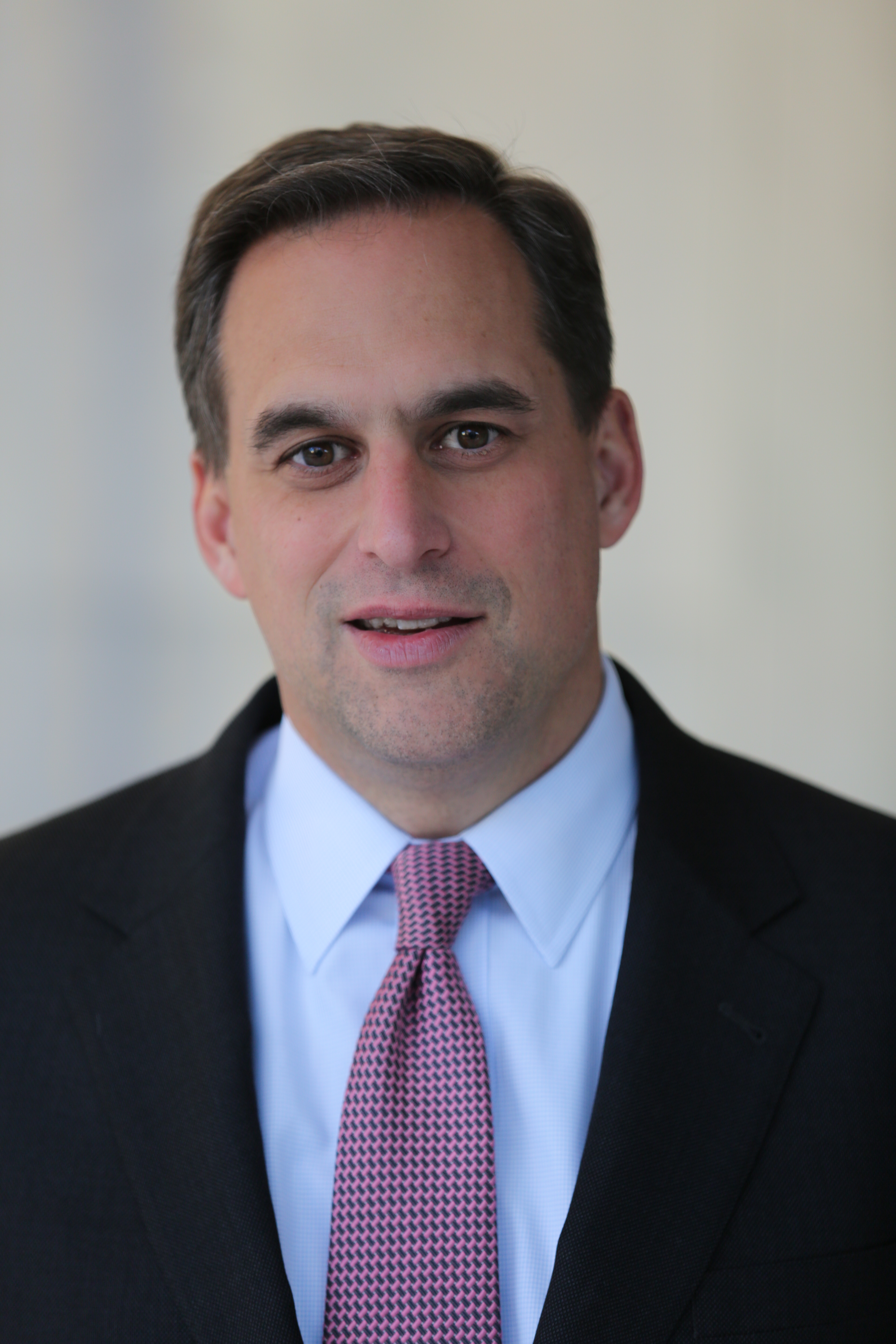
Seth Jones
Seth G. Jones is senior vice president, Harold Brown Chair,
director of the International Security Program, and director of the
Transnational Threats Project at the Center for Strategic and International
Studies (CSIS). He leads a bipartisan team of over 50 resident staff and an
extensive network of non-resident affiliates dedicated to providing independent
strategic insights and policy solutions that shape national security. He also
teaches at Johns Hopkins University’s School of Advanced International Studies
(SAIS) and the Center for Homeland Defense and Security (CHDS) at the U.S.
Naval Postgraduate School.
Shane Shorter
Command Sergeant Major Shorter enlisted in the
Army in 1988 and attended Infantry Basic Training
and Advanced Individual Training at Fort Benning,
GA. He was subsequently assigned to 3rd Infantry
Division in Kitzingen, Germany.
Command Sergeant Major Shorter volunteered for
Special Forces training and graduated the Special
Forces Qualification Course in 1992. He was then
assigned to 3rd Battalion, 1st Special Forces Group (A)
at Fort Lewis Washington. During the following 23
years, he has held the positions of Junior Medical NCO, Senior Medical NCO, Team
Sergeant and HSC First Sergeant. His Sergeant Major assignments are all with 1st
Special Forces Group and include, OPSDET Sergeant Major, Company Sergeant
Major for Charlie Company 3
rd Battalion, Group Operations Sergeant Major, and 1st
Battalion Command Sergeant Major.
Command Sergeant Major Shorter’s military education includes every level of NonCommissioned Officer Professional Development, to include the Summit Course.
He is a graduate of the Special Forces Qualification Course, Special Forces
Operations and Intelligence Course, Static Line Jumpmaster Course, Dive Medical
Technician’s Course and the Military Free Fall Parachutist Course.
Command Sergeant Major Shorter’s awards and decorations include the Bronze
Star Medal, Meritorious Service Medal, Army Commendation Medal with “V”
device, and Army Achievement Medal. He has been awarded the Special Forces
Tab, Combat Infantryman’s Badge, Expert Infantryman’s Badge, Expert Field Medic
Badge, Master Parachutist Badge, Military Free Fall Parachutist Badge, and the
Saint Phillip of Neri Award (Bronze Order).
Command Sergeant Major Shorter currently serves as the Special Operations
Command, Pacific (SOCPAC) Senior Enlisted Leader. He and his wife Leslie have
been married 26 years and have one daughter, Kelcie, who is a senior at the
University of Washington.
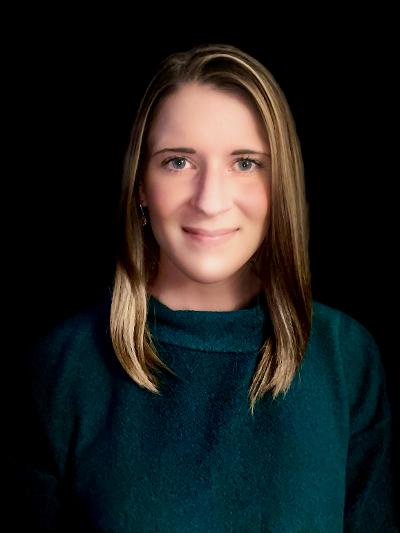
Shawna Moore
1LT Shawna Moore graduated
from the United States Military Academy in 2018 as a Stamps Scholar and Rhodes
Finalist with a degree in Environmental Engineering. She commissioned as a
Field Artillery Officer and began her service with the 101st Airborne
Division. Subsequently, she deployed in support of Operation Freedom’s Sentinel
as a JSOC targeting operations officer and cultural support team member.
Currently, 1LT Moore is serving as a company fire support officer in 2D Ranger
Battalion. She also works as a project manager at Allied Airlift 21, a
non-profit evacuating at-risk partners from Afghanistan.
Timo Braese
Sergeant Major Timo Braese was born on 23 September 1972 and is a native of Karlsruhe, Baden-Württemberg, Germany. He enlisted into the German Army on 1 July 1991 as an infantryman. SGM Braese has served in all leadership positions from team leader to platoon leader of a ranger assault platoon. He was appointed as Sergeant Major of the German Armed Forces on 1st January 2015 and continues to serve today. His last assignment was with 3rd EGB 31st Airborne Regiment (SOF), and has served as an Operations Sergeant Major for the unit.
Timothy Heck
Timothy Heck is the deputy editorial director of the Modern
War Institute at West Point. He is an artillery and regional affairs officer in
the US Marine Corps Reserve and a veteran of both Iraq and Afghanistan. He
previously served at SOCOM FMD-JCT. He writes on Soviet military history,
amphibious operations, operational art, and the Cold War. He teaches courses in
the Defense & Strategic Studies program.
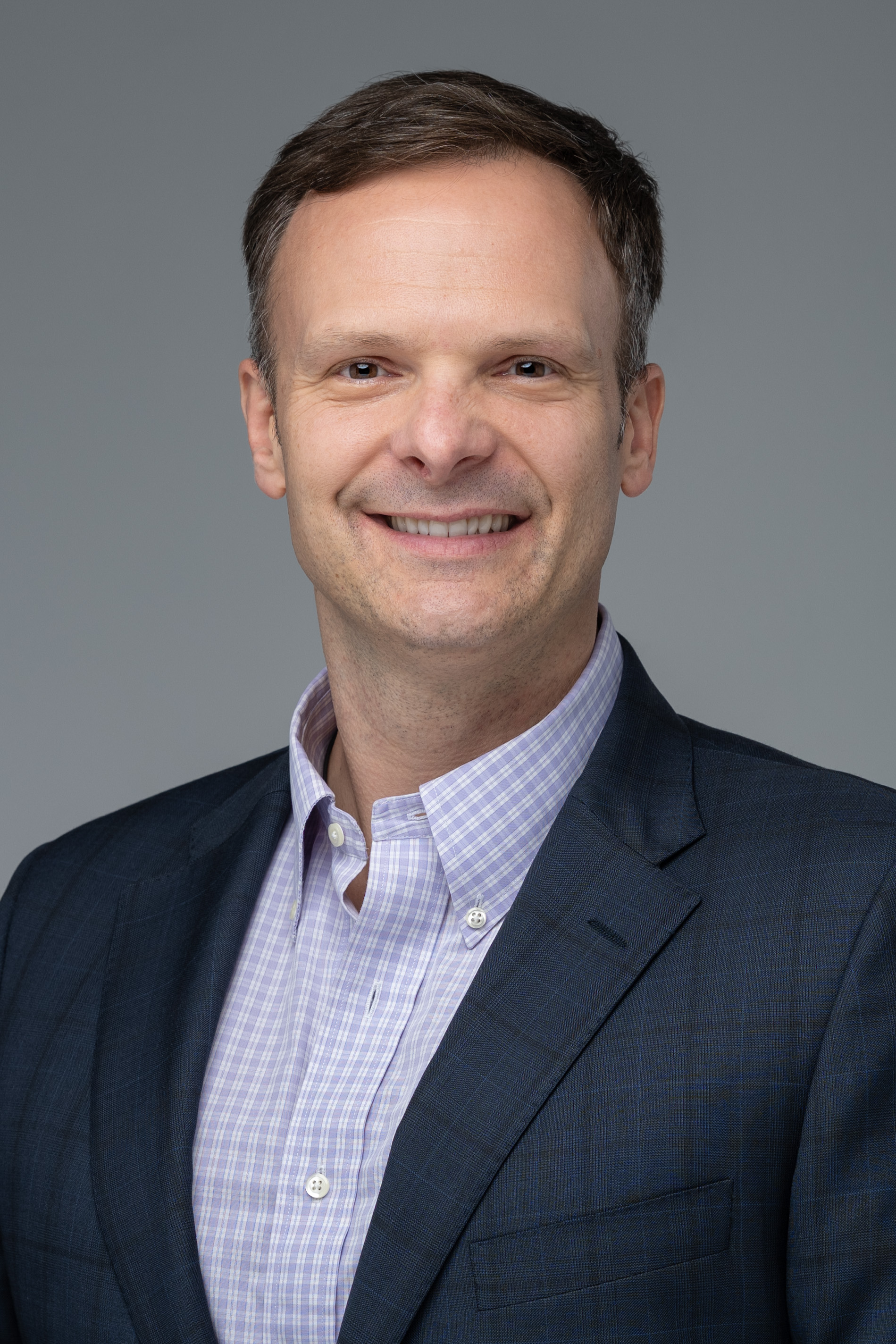
Trevor Hough
COL Trevor Hough is a career U.S. Army Intelligence Officer
with extensive assignments in USSOCOM units. COL Hough has served at
every level of Special Operations formation from Special Forces Company to
Special Operations Intelligence Brigade to 3 Star Joint Special Operations Task
Force level. COL Hough has also served at the national policy making
level including tours at the Joint Staff and at the White House as Vice
President Pence's Middle East policy advisor and at the National Security Council
Staff. COL Hough's last assignments in the Army were as Commander,
Joint Special Operations Command Intelligence Brigade and at the National
Geospatial-Intelligence Agency as the Deputy GEOINT Mission Manager for
Counterterrorism and the Near East.
What is the 4th Age of SOF?: Conversation w/ Dr. Isaiah "Ike" Wilson, JSOU President
The views expressed in this video are entirely those of the speaker[s] and do no necessarily reflect the views, policy or position of the United States Government, Department of Defense, United States Operations Command, or the Joint Special Operations University.
Forum Scene Setter, Dr. Isaiah Wilson, JSOU president and CSM Shane Shorter, SEA JSOU
JSOU - The fourth age of SOF: the use and utility of Special Operations Forces in a new age history, theory and future practices scene setter with Dr. Isaiah “Ike” Wilson III, JSOU President and CSM Shane Shorter, SEA, JSOU. Day 1, 29 March 2022. Opinions in this forum are those of the presenters and may not necessarily be the views of U.S. Government, Department of Defense, United States Special Operations Command, and the Joint Special Operations University.
Show Notes:
-
When we speak about “Ages of SOF”, we are referring
to organizational structure essentially, and how ours has or has not changed
over time to help us – SOF -- meet mission
requirements for Nation.
-
We like a “Back to our Futures” approach to
framing or rediscovering, the Ages, and this involves 3 main questions: a) how
is Global Geopolitical or Power Competition changing, and what are the
implications of such change (good and bad)?
b) What does this mean for
Special Ops and SOF, for next 30 years? c) What will change / needs to change for SOF to
meet mission requirements? Consider: 12 core tasks, joint combined
competencies, SOF’s value proposition – what can we offer, force structure, force modernization, force design, etc.
-
Consider all this in the context of: 2022 draft
National Security Strategy, National Defense Strategy, National Military
Strategy
-
3rd Age of SOF -- James Dietz’ “Call to Colors” Print, explanation. The GWOT Era in hindsight – this is the 3rd Age of SOF, which shows: failure of preventative deterrence, reactionary posture, under-preparedness, Iraq and Afghanistan Wars define the 3rd Age. But new light ahead – hope through new intention, benefits of anticipation, benefits of foresight. SOF Operators at the left of the print show SOF at the vanguard of change.
o
Afghanistan withdrawal in August 2021, puts an
end to the 3rd Age of SOF, closes out the second GWOT War.
-
SOF are at another threshold crossing, Compound
Security, driven by a Compound Security Dilemma. Need SOF that is equally “compounded”
– use all we have learned from the last 3 Ages and make new. We lose nothing,
we take it all and use it.
-
Compound Security – this dynamic is placing new
demands on us – New Operational Overview. Conflicts at the Seem – low intensity
conflict, indirect force, physical and human terrain at the sub - system level.
Gain positional advantage – in physical, virtual, and ideationally*
-
Sources of conflict can be viewed as sources of
opportunity
-
Old School Mercantilism – going back to a more transactional
international relations – breakdown of Westphalia
-
Early Age – task forces used for Special Ops – team
put together and then disbanded after mission complete.
-
1st Age – WW2 – still disbanding
after wars. But were becoming able to see the values of SOF.
-
2nd Age -- President John F Kennedy saw the need to
build COIN and that SOF was the way. In response to Cold War threats against
nationalism.
-
3rd Age – started w/ Operation Eagle
Claw and the establishment of USSOCOM. Goes through Kuwait, Iraq, Afghanistan,
9/11, and ends with the end of GWOT, August 2021.
-
Now begins the 4th Age of SOF –
exploitation of traditional Western institutions. China and Russia no longer
playing by established norms.
o
China – island building, Taiwan, One Belt One
Road Initiative
o
Russia
-- little green men and Wagner Group,
bold invasion. Georgia, Ukraine
o
We must view these threats NOT ONLY as
singularly and separate threats, BUT ALSO in light of ALL the other threats –
Iran, Terrorism, CWMD, Climate, Information, etc
-
How do we overcome transactional relationships?
How can we find positional advantage? Mention
of Commanding Heights in the One Belt One Road Initiative.
-
Is the key to preventing hot wars using irregular
warfare in order to extend the length of periods of relative peace?
-
SOF Value Proposition: SOF has the most professional, educated,
discipline, and mature forces our nation has to offer. SOF can help in 5
ways: Geostrategic Shapers, Agent of
Influence, Integrated Deterrence, Help pursue ideological supremist and CWMD
proliferators, SOF Options for traditional warfare and crisis response
Panel 1: Ages of SOF from a Historical Perspective
JSOU SOF Q2 Forum - Panel 1 - Day 1, 29 March 2022 Panel 1: Ages of SOF from a Historical Perspective What are the major historical lessons from each previous age of Special Operations, and how can they be used to prepare for the future? Moderator: Mr. John Melkon Panel: COL (Ret) Mike Eiland CW4 (Ret.) Mike Rutledge 1LT(P) Shawna Moore Day 1, 29 March 2022. Opinions in this forum are those of the presenters and may not necessarily be the views of U.S. Government, Department of Defense, United States Special Operations Command, and the Joint Special Operations University.
Show Notes:
Kings College War Studies research – Royal Navy officers
dismissed historical lessons learned from 18th and 19th
century commanders, which led to rigid Commands. Also, they dismissed
technology from past decades and centuries that they should have been familiar
with in order to benefit tactically, operationally, and strategically.
We do not study military history, or even history really, in
our national education system. Why? We
didn’t want to study the Vietnam War, due to national embarrassment, and so we
refused to learn lessons from it. Why did it happen? Why did it expand? What did we do wrong?
Next was the Cold War, Mutually Assured Destruction (MAD),
as well as the desire to abandon warfare altogether. Elites searched for the
source of the problem, the “warmongers” they considered to be the
“establishments” of the government, military, religion, etc. They saw war as a
failure of human action / inaction. Trotsky
– “You may not be interested in war, but it is interested in you”.
Panelist 1: COL
(Ret) Mike Eiland – 1st Age of SOF. 1964-1974 – SOF HQ never existed, no SOF
doctrine or anything like that existed. All was tactical. SE Asia, Vietnam,
Thailand, Laos, Cambodia.
Question: What inspired you to come into Special Operations? Answer: His first year as a lieutenant, he met
a SOF operator, and noticed his professionalism and was inspired by his stories. SOF was a career killer and had a bad
reputation of attracting rogues and misfits. But he did well in it anyway and also went to
Vietnam.
Question: Discuss some lessons
learned that have been applied. Answer: 1) recruiting has gotten better in order to weed out bad
personalities, 2) communications
capability has improved exponentially (but this can be a disadvantage as well), 3) principal of war that we violate the most is –
simplicity. We have many layers of command, and large staffs, which diminishes
our agility, 4) language capability is better now than it was, and could get
even better still, 5) old SOF had too many ethical pitfalls – we do
better today, but we have much room for improvement.
Panelist 2: CW4
(Ret) Mike Rutledge -- 2nd
Age of SOF. Enlisted Navy and Warrant
Officer Army – 1990 – helicopter pilot, then SEAL Team 1.
Lessons
Learned: Desert Storm was the first true
JOINT environment, but SOF didn’t seem too JOINT at the time, in some ways. The
new generation is every bit as tenacious and physically and mentally able to do
the job as well or better than we did. As a community, we have overestimated
our ability to handle everything mentally. We need to look out for each other,
there is no way to do this job for 20-30 years without feeling any effects
mentally and physically.
Panelist 3: 1LT
Shawna Moore: 4th Age of
SOF, graduated from West Point.
Artillery Officer, Fort Campbell, JSOC, Cultural Support Officer. 4
years so far.
Lessons: What do we do well? 1)
Selection and reselection. This is unique and getting better all the
time – longer selection, more mentally strong, AND intellectual tasks – SOF is
getting smarter. This selection applies also to supporters, which makes the
whole force better. Reselection is important because it means you have to
repeatedly prove yourself, you are not “tenured”. Keeps SOF professional. 2)
Another distinguishing factor is INNOVATION. We encourage innovation, which is
not what general forces do. Doctrinally, GPF and SOF are not much different
from each other, but they do work different, and this is because SOF is allowed
and expected to be innovative, eg: warm
blood transfusions. 3) Unwavering
mastery of doctrine – we are good at quick institutional learning. What we
asked of 2nd age of SOF and 3rd age of SOF were very
different, and it adapted. We are able to innovate and learn and scale to
capacity. 4) Ops-tempo we need to
achieve, we have to improve. Figuring out where we fit in the future fight will
help us achieve this and get the tempo correct, so that we can sustain forces.
Question: What’s the
greatest challenge from your Age of SOF, and from what you hear and know about
the state of the force today, is it still an issue?
Eiland – North Vietnamese Army, is no longer a challenge.
Lack of communications was another challenge, and we have gotten better at
that. Also, problem of Jointness, which was lacking more then and we have improved
upon.
Rutledge – the biggest challenge in sustained combat ops, is
finding motivation to a mission that is ongoing. After a year or two, we lose
sight of mission and focus more on safety of ourselves and become adverse to
risk.
Moore -- focus on what the next fight looks like.
There is a lot of things going on, and not knowing what is going to be most
important, we train on various things, but will we be ready for the big fight?
What will the next big fight be?
Melkon -- What are
you most excited about for the future, regarding technology? For Moore.
Moore -- We possess a
lot of technology and a lot of combat experience within our force. We have been
at a technological overmatch for many years with the forces we have been
fighting (ISIS), but going forward, it will be interesting to see how we
combine our combat experience with our technological experience to address a
new (more technologically competent) enemy and new threats.
Eiland (same question)
-- values are timeless, selfless service
among them. As far as technology goes, what concerns me is how we use the
technology. We do not have to exercise a capability just because it is there,
and we must stay true to our values when we employ technology in the future. We
have to balance all this with a tendency to micromanage, and how we recruit and
give our best soldiers the ability to solve problems.
Moore – Question: Discuss human factors and psychological
factors in the fourth age – we need to establish left and right limits very
clearly. Young soldiers are asked to walk the line of what is human dignity and
achieving tasks and mission. It is imperative for their psychological health
that we set left and right limits and that we keep lines of communication open
in order to support them. We ask a lot of them.
Melkon reminds us that allies and partners are crucial to
the next fight. And relationships with our allies and partners are not only the
responsibility of our government, but of each individual as well.
Panel 2: The Fourth Age of SOF
Panel 2: The Fourth Age of SOF How do the past three “ages of SOF” impact the preparation for, and success in, the Fourth Age of Special Operations? Moderator: COL Mike Harris Panel: Dr. Isaiah “Ike” Wilson Mr. Chris FussellBG (UK) Rob Stephenson MAJ Alex Deep Day 1, 29 March 2022. Opinions in this forum are those of the presenters and may not necessarily be the views of U.S. Government, Department of Defense, United States Special Operations Command, and the Joint Special Operations University.
SHOW NOTES:
Research Question:
How did the past 3 Ages of SOF impact the preparation for, and success
in, the 4th Age of SOF?
Moderator Opener – COL Harris – Panel is a
combination of those from 3rd Age of SOF, moving into the 4th
Age. We seek to be introspective and try to understand what we have learned
over the last 20 years that we can apply to the new fight as our nation moves
forward in Great Power Competition. Intentionally included MAJ Deep as a field
grade officer that will have to transition our lessons learned into something
useful going forward for the Enterprise.
Panelists:
Dr. Ike Wilson: JSOU President, combat vet, Army aviator,
strategist, CENTCOM CDR’s Initiative Group, Full Professor of Political
Science, taught at West Point, Columbia, Yale, George Washington University,
Previously Director of US Army War College Strategic Studies Institute.
BG Rob Stephenson (UK): Deputy CDR NATO Special Operations HQ: 35 Years, N. Ireland, Bosnia, N. Macedonia,
Iraq, Afghanistan, N. Africa, Masters in Defense Studies, Kings College London.
Mr. Chris Fussell: Retired Navy SEAL, scholar and author, Senior
Fellow for Natl Security New America, Lifetime Member of Council on Foreign
Relations
MAJ Alex Deep: current Army Special Forces, currently at
USSOCOM, commanded at numerous levels, combat operations in Afghan and Syria,
Masters of Arts in Strategic Studies, Johns Hopkins University, Instructor of
International Relations, founder of Irregular Warfare Group, Westpoint.
COL Harris – Director of Special Activities at
USSOCOM – Moderator.
Dr. Wilson:
Will use a 3 part approach to frame the research question. Focus on
Operations, Actions, Activities, ad Investments (OAAI).
Q: Why should we revisit past ages
of SOF? Why do we need to change?
A:
Point 1 --While we may be doing things right, are we doing the right
things? We are living in a time of change, and there may be large systems
changes as well. We must be ready to change in response to big political
changes that are happening. We have to consider what is the same and what is
new, and for this we need THEORY.
We have a New Security
Environment, which demands we consider what will change in Special Operations
(the nature of the operations), as well as our Forces (operators and
professionals). New Use, Utility and Identity required to define what is a
special operations and what is a SOF Professional.
COMPOUND SECURITY DILEMMA: Primary unique feature that underpins our
need for change -- change in global security environment, change in character
of global geopolitical competition. What makes this dangerous is the nature of
the threat, which is a compounded collection of security threats that we have
not been able to understand and solve, and underlying conditions that are
complex and multidimensional, trans-everything and temporally dynamic.
These threats are impossible to
contain transnational, transregional, with potential for metastasizing into big
multinational wars. Ukraine, Syria, Iraq . . . .
International Relations: Beg-thy-neighbor, transactional
relationships, less collective security and more DIY security. We HAVE to fight
against this with COLLLECTIVE security. Partners and allies are the key to combatting
these problems.
For SOF: the task at hand requires everything we got –
we have to compound all the TTPs and lessons learned form all the past ages of
SOF in order to meet the compound threat we face today. Requires a back to our
futures perspective.
Point 2 -- History is
illustrative: SOF hasn’t changed in its
importance, it is still as important as it ever has been. Only the environment
has changed. But we may need to adapt as we consider the new threat
environment. Russia and China openly challenge the traditional rules-based
order of international relations.
Special
Operators must become trans-domain problem-solvers. Also, with access and
placement, as well as understanding of human terrain, SOF can provide early
warnings long before conflict heats up (rheostat). SOF has presence and
relationships, which translates into INFLUENCE.
SOF
must bend escalation curve downward and extend the spaces in between conflict
over time (increase spaces of relative peace).
Point 3 – Combined Joint SOF must
be prepared to coordinate all facets on national power.
Joint combined SOF will play
leading role in defining the future role of alliances, we must revamp our
messaging strategies in order to gain informational advantage – control the
narrative. SOF in technology – SOF must figure out how to leverage new
technology without compromising ethics. Where does SOF fit into deterrence? How
does SOF power need to be reconsidered, SOF utility and relevancy, what is our
role in grey zone conflicts?
BG Rob Stephenson --
British Army 35 yrs. Began at end of Cold War. From NATO position, when
considering the future of great power competition and conflict, I will offer a
few thoughts from the European / NATO perspective. Can provide a view of what
Dr. Wilson mentioned as the importance of Ally and Partner importance in
fighting the compound global threats.
Agree
that the strategic environment and great power competition and conflict is
central issue, and note that ‘we’ tend to make the mistake, when we think about
the GPC, of comparing it to the Cold War, but it is really not the same
strategic context. There are differences.
The
whole of Europe recognizes that it is different from the Cold War, as we see
now with Ukraine (Georgia, etc)
Advances
in technology.
1st, 2nd and
3rd ages of SOF each had their own opportunities to develop
innovation and shape the force. Policy
restraints were less, due to the nature of conflicts in the 3rd age,
where now when we are looking at GPC, things will probably move slower,
considering the nature of “competition”.
For the Alliance / NATO, the 3rd
age of SOF has been a catalyst for development. 20 years of war have
necessarily brought development. Will we lose some capabilities we had for the
3rd age? ISR, access, etc.? 3rd age of SOF has built a
capability that is orientated toward the problem set of the last 20 years, and
we want to be able to move away from some of the expectations we have created
over the past 20 years as we pivot towards a new threat. (eg: can we continue to provide readiness
such as one hour medivacs)?
*As we look toward the future, we have to think about a SOF capability across the Alliance that is fit for purpose. The U.S. leadership in this Alliance is of key importance. You must understand the strategic environment in order to get the information battle correct.
Also, communicating with members of the Alliance requires a nuanced approach. Understanding the strategic environment and context is key to develop influence. What you say to Portugal is very different from what you say to Norway, and how you get each one to contribute to a SOF capability fit for purpose. Each country has a different requirement, provides opportunity for influence and building capability.
Consider supporting law enforcement, and other agencies in some of these countries, where appropriate.
We don’t want to lose what we have built over the past 20 years, keep developing the relationships, and then ADAPT the capabilities as needed.
*Key: Understand the Strategic Context, Accept the Changes, Learn the right lessons from the previous ages of SOF, particularly the last 20 years (3rd age /CT age), and do what we can to unlearn the wrong lessons – particularly, training and recruiting, which we tend to focus backward when writing requirements and we need to focus forward to predict requirements.
Mr. Chris Fussell: Been out of SOF for 10
years but stay engaged (SEAL). Pessimistic on the transformation. The idea of transitions
of phases (ages) of SOF could be argued, but as SOF has evolved, we look for
trigger points. The forcing function of modern SOF was 9/11. Prior to that was
President Kennedy, and a recognition of a need for a SOF force, and so it was
built and codified. What is the trigger point for a new age of SOF?
Maybe
it has occurred? Maybe it is Ukraine? But we should discuss if we have had such
a trigger point . . . . . there hasn’t been an event that has required us to
change. Dr. Wilson is looking at the
world and recognizing a change in context, and stating a need for change, and
it would be great if all systems could be predictive and proactive this way,
but it is an uphill grind.
Old
Organization: A hierarchy, specialized
units led by generational leader, accomplish a mission, gather intel, analyze,
and new decision cycle. McChrystal recognized a need for something else, b/c
the enemy was a NETWORK, so we had to adapt. We became a hybrid of structured
and unstructured organization. This has been the last 20 years the way we have
been organized.
Now we
need a new structure – considering culture of our organization
(direct action, kinetic activities is what our culture expects, but we need
something else, like space, cyber, information influence), capabilities
we need now, and composition of the force (insufficient to solve
the next 20 years, SOF has ability and flexibility to bring in other people
from society, and employ new selection models, think diversity and inclusion,
tech, crypto, cyber experts).
MAJ Alex Deep: I think that security is a zero sum game, in
that the steps one entity takes to secure itself, inherently take away from the
security of another. The zero sum game
has come to revolve around INFLUENCE, along the same lines as security, influence
capacity is limited.
We need
to take an asymmetric approach toward influence. FID, SA, COIN, CT, UW, etc,
are all our tools to engage in irregular warfare (IW), or to influence. As me
move to the 4th age, IW is going to be the standard way to fight. We
need to avoid random acts of IW, and make sure that the missions we take are
strategically connected in support of a larger goal. IW is a great set of
tools, and we are good at it. We just need to avoid random acts of IW and move
toward coordinated efforts of IW in a large, strategic campaign.
COL Harris:
Q: Consider what Dr. Wilson
asked – are we doing the right things? And what BG Stephenson said, what do we
need to Unlearn? What is one thing we should unlearn from the 3rd
age of SOF?
Wilson:
We have to reconsider our USE and UTILITY from the last 20 years and
toward the GPC. What we are going to be essentially doing, is going to be
different . . . . . we focused more on some of the 12 core tasks than others.
We need to understand we are NOT pivoting from CT, we always have done CT ad we
still are going to do it. AND, we are ALSO doing more things for GPC. Strategic
rebalance? New wine in old wine skins? No. We need to keep working to
understand and explain and educate people about what we do, and what we can
do. Unlearn the simplistic way we talk
about what we do.
Fussell:
SOF will have to return to being the SUPPORTING element, where we have
become the SUPPPORTED element. It will not stay that way. We will have to
return to specialized elements. The world has become hard to understand, and
SOF has much to offer because of the nature of what we do.
Deep:
How we conceptualize risk will define how we operate in the 4th
age of SOF.
Harris:
3 things we should unlearn:
unlearn putting ourselves and our need of mission in a box, unlearn that
SOF is the supported element, unlearn how we conceptualize risk and risk
mitigation.
Wilson:
I think all 3 go back to what Chris put on his whiteboard, speaking to
CORE IDENTITY. A synthesis of all 3 comments is that there is a forewarning,
that we must understand our identity. We are taught to understand mission by
task and purpose – PURPOSE is the defining factor, and we must figure it out.
We have to understand what the nation needs from us, our PURPOSE, then consider
tasks. We have been doing it backwards.
Fussell:
We evolved the way we did for a specific 20-year effort. In order to
change to meet the new fight, we DO HAVE to let some of that go, some of the
capability will be lost. How capable do we want and need to be in that part of
the mission set – direct action, CT, etc. Should we move some resources over to
another area of focus . . . . . . probably.
COL Harris:
Q: What is one thing we need to bring with us from the 3rd to
the 4th Are of SOF?
Wilson:
F3EAD mindset. The org chart may need to be adjusted, but the core value
of INTEGRATION of SOF, needs to be brought forward. We are good at integrating,
bringing together all the elements of national power, the force multiplying
role. Anauytical approach.
Fussell:
Human networking, and all that Wilson said. Technology and innovation,
acquisitions, miniaturization, AI and ML, advancement. We have to keep bringing
the cutting edge, challenging norms to get better. Innovative approach.
Deep: Culture of using the partnered approach.
Partnered approach.
Keynote: General Richard Clarke
JSOU SOF Q2 Forum - Keynote Speaker (recorded) GEN Richard Clarke, CDR USSOCOM .
Day 1, 29 March 2022.
Source: https://www.aspeninstitute.org
Opinions in this forum are those of the presenters and may not necessarily be the views of U.S. Government, Department of Defense, United States Special Operations Command, and the Joint Special Operations University.
Panel 3: Creating Complexity for Current and Potential Rivals
Panel 3: Creating Complexity for Current and Potential Rivals How can Special Operations Forces best create complexity for current and potential rivals during both competition and conflict? Moderator: COL (Ret.) Liam Collins Panel: Mr. Andy Maher, LTC Meghan Cumpston, Dr. David Kilcullin and Mr. Peter Cloutier. Day 1, 29 March 2022. Opinions in this forum are those of the presenters and may not necessarily be the views of U.S. Government, Department of Defense, United States Special Operations Command, and the Joint Special Operations University.
Show Notes:
Research Question:
How can Special Operations Forces best create complexity for current and
potential rivals during both competition and conflict?
COL (Ret) Liam Collins: former SOF, PhD Princeton, Director of Combatting
Terrorism Center and founding Director Modern War Institute at West Point.
Mr. Andy Maher: 20 yrs Australian Army,
doctoral candidate examining proxy warfare
LTC Meghan Cumpston: G2 1st Armor Division, MA
International Relation John’s Hopkins
Dr. David Kilcullin: Center of Future War, senior
fellow, New America, senior diplomat, State Department, senior advisor, author
of Accidental Guerrilla, Out of the Mountains
Mr. Peter Cloutier: JSOU Professor, career
Foreign Service Officer, USAID
Mr. Andy Maher: What do we mean by a Special Operation? It is unorthodox, and it is elite. Public
likes to focus on the elite part, but is this always a good thing? Does focus on the elite cause moral drift?
How do we look at what is unorthodox and innovative, in an open source
environment?
Can we create a
playbook to identify what our range of options are in order to create complexity
for the adversary? Lay out tasks, or “plays” from tactical level to strategic,
from less elite to more elite capabilities. Look to the past, not just American
operations, but all the special operations in all the past wars, and how might
they be adapted with the new capabilities we have today. What was the effect of
the operation, and how can we achieve the same effect today, albeit by
including new technical capabilities for instance? Codify all the options in playbook form.
Think through these options, deliberately consider specific options, based on
effects. This playbook will assist in creating complexity for the enemy by
using our collective histories to present options we can visualize and mix and
match in a useful way.
COL Collins:
What should we be doing in the Ukraine conflict?
Maher: Competition with Russia creates second
order effects when considering Ukraine. The way the Wagner group doubled down
in Mali a few weeks ago, was a response to U.S. competition and activities in
Ukraine. The way other nations are seizing Russian assets, economic warfare,
presents a challenge in that it is difficult for us to assess all these
activities and then visualize the overall result. We must look at the
globalized scale when we consider results, because it isn’t a bilateral problem.
We are doing things, and so are others, and there are effects being achieved.
Collins:
How much does SOF need to engage the Interagency, are we doing enough or
do we need to do more to get into the Interagency response?
Maher:
Hyper-Interagency is a requirement of SOF if we want to accomplish
unconventional warfare effects in the arenas of political warfare, economic
warfare and resistance.
LTC Cumpston: as a senior intel officer of an
armored division, to increase complexity for our adversary means we need to
increase interoperability with our own U.S. general purpose forces (GPF). This
will allow us to increase effects in our missions.
Internal
interoperability: Intel sharing, data
sharing, how we communicate together, train together. We all need to understand
what SOF brings to bear on a problem set, and what GPF brings to bear. There is
much room for improving these relationships and thereby increasing
understanding and awareness and interoperability. This is not a formalized
process. We have a lot of room to grow in order to work towards better
incorporating SOF in the fight and multiplying the effects we can achieving by
doing so.
Collins:
When we are in competition phase (short of conflict), what are some ways
we can increase complexity for our adversaries?
Cumpston:
Intel sharing needs to be improved and would set the stage for success
when we move toward conflict. Second, by demonstrating interoperability to the
adversary by training exercises – and messaging these to the adversary. Specifically, would ask for exercise
illuminating how SOF’s specific capabilities can enhance some of the
capabilities we have here at Fort Bliss.
Dr. Kilkullin:
Complexity is a subset of man sets of costs to the adversary. We want to
impose costs on the enemy in time, space, material, and reputation.
Time -- SOF can
throw a campaign off tempo, cause an adversary to take longer to do things, mapping
the adversary target set and publishing it can slow down the adversary.
Space -- SOF can pose a distributed threat far and
wide, operate in a diffused space, so that the enemy has to defend everywhere.
SOF is agile and can operate this way.
Material -- forcing
the adversary to plan for more material losses. Imposing continuous costs on
the adversary. Every little cost counts.
Reputation --
Russia / Ukraine, and China / Taiwan
-- they seek to intimidate the smaller nations by creating the illusion
that they (Russia / China) are
invulnerable. By showing the world that they are not untouchable, we discredit
this illusion and harm their reputation in a way that translates into actual
physical victories.
Keep in mind that
we need to create these effects across both military and non-military
capabilities. Very Important -- we have to understand the reaction
parameters of the adversary, where they will react, what form, what duration, by
what authorities, etc. We must predict the adversary response as much as we can
in order to gauge the correct activity.
We also need to
free ourselves from the tyranny of the CONOP. We need to deploy smaller teams,
with diverse skill sets. We need more agility. We need to sustain a virtual persistent
presence, reach back and reach forward capability. Our own GPF also needs to be
more involved, train with them more, as well as more agencies need to get
involved – working toward more whole of government solutions. It’s not just a
military problem.
Collins:
what is impeding us from being able to do these things?
Kilkullin:
We need to improve our physical and mental capacity to do them. Risk
aversion by politicians who have become used to a very certain kind of mission
set for SOF. We need to let them know what else we can do, we need to be the
gray zone threat, and we need to explain to politicians what this means and how
we can contribute.
Mr. Cloutier: The best focus here is: Monograph of 4th Age of SOF: Use
and Utility of Special operations in a New Age, by Will Irwin and Isaiah
Wilson, JSOU President. Find here in the Forum webpage as a rea ahead. This
monograph explains how we can create complexity. Focus on Illegal and
Unregulated Fishing (IUUF). Complexity theory – agents at one level are
building blocks for agents at the next level; networks include many agents
gathering information who are learning and acting in parallel and in an
environment produced by the activities of these agents; system co-evolves with
its environment; future is emergent and always unfolding; hard to predict
future. Greatest implication of
complexity is in rethinking our mindset to solve our problems.
Butterfly Effect:
1978 theory. Butterfly does cause the tornado because, controlled for all other
environmental conditions, the tornado would not have happened if the butterfly
had not flapped its wings.
How do we apply
complexity theory to our operations:
Probe, sense, adjust. Do an action, observe changes, observe new
starting position, do another action, observe again. We are observing whether
we are moving in the right direction, rather than doing a single activity and
expecting a single response or output, which is too simplified of thinking and
planning for a complex environment.
Monograph agrees with this, as it recommends by, with and through operations, and population centric operations in order to “attack the adversaries strategy rather than his army”. Invisibly adjust the rheostat – for IUUF – work through indigenous people to affect the government and thereby effect China’s ability to fish illegally.
Question: What are some ways to improve efficiency and effectiveness at defining assumed adversarial doctrine versus actual doctrine?
Cumpston: What we assume has been adversarial doctrine versus what has played out on the battlefield, has indeed highlighted our mistaken assumptions. Can we collect intel as evidence to support actual adversary doctrine, or to show what is inaccurate in their published doctrine? This may help.
Question: Do you
hold to strategic paralysis theory? If so, how does SOF contribute and how was
this evident in 1st, 2nd and 3rd ages of SOF?
Kilkullin: There are examples from the 1st World War, and Shock and Awe is another general example. 2 distinct modes of strategic paralysis - - 1) closing a lethal threat to an adversary commander (for the adversary to know that their commander is being hunted, might cause them to act irrationally, and make mistakes, this is why Russia is sending kill teams to go after Ukrainian leadership); 2) posing a bandwidth challenge for adversary’s decision makers
Question: In this
4th age of SOF, what emphasis should we put on deterrence versus preparation
for the big fight?
Maher:
Use accumulative strategy rather than sequential strategy. We have to
engage on as many levels and in as many places as possible in order to create
complexity. Do a bunch of things in a bunch of places at the same time to
create a strategic problem for the adversary. We can do message this capability
via exercises and overt messaging and also right in our doctrine.
Kilkullin:
We just experienced a major failure of strategic deterrence – in Ukraine.
We did not deter Russia in Ukraine. We see deterrence in a vertical escalation,
but SOF can support deterrence in a horizontal direction (if you were to hold
assets at risk in El Salvador, you might cause nuclear deterrence in Russia,
etc).
Collins:
What might we have better to deter Russia in Ukraine?
Kilkullin:
We had a tripwire of allies and partners and infrastructure in Ukraine
for years. When threat increased, we pulled our people out! This was the opposite that we should have done.
We indicated that we were going to leave and emboldened the adversary Russia.
Cumpston:
There is an information component as well. The administration released de-classified
information in order to claim the narrative. Could we have employed that
strategy further left in the timeline? Would this help? Would it have given
more time for Russian leadership to change their calculus?
Collins:
Should we have combat observers on the ground in Ukraine?
Cumpston:
The benefit of having combat observers on the ground is gaining truth. They
can help the military get better insight as to how well they are actually
doing, and what they need to work on.
Kilkullin: We should not have combat observers on the ground now. If we had them before the invasion, they may have actually served as a deterrent, but putting them in now would be too dangerous.
Collins: What do we need to do in training and education to better prepare us for complexity against the adversary?
Kilkullin:
Smaller teams, operating at distance, design, using autonomous systems
underwater, air, etc., air-ground integration, space is now a warfighting domain,
support to resistance movements.
Panel 4: Understanding and Countering Irregular Adversaries
Panel 4: Understanding and Countering Irregular Adversaries What is ‘irregular warfare,’ and how can SOF conduct, and prevent against, IW in the future? Moderator: MAJ Kyle Atwell Panel: Dr. Jake Shapiro, Dr. Seth Jones, LTC Katie Crombe, and LTG Ken Tovo Day 1, 29 March 2022. Opinions in this forum are those of the presenters and may not necessarily be the views of U.S. Government, Department of Defense, United States Special Operations Command, and the Joint Special Operations University.
Show Notes:
Question: What is
Irregular Warfare (IrW), and how can SOF conduct and prevent against IrW in the
future?
Moderator: MAJ Kyle
Atwell: Chair Irregular Warfare Initiative,
Podcast host IrW Podcast
Panelists:
LTC Katie Crombe: Army Strategist, SOCCENT, J5
Dr. Seth Jones: Sr. Vice President CSIS, Author: 3 Dangerous Men: Russia, China, Iran and the
Rise of Irregular Warfare
Dr. Jake Shapiro: Professor Princeton University,
Coauthor: Small Wars, Big Data: The Information Revolution in Modern Conflict
LTG (Ret) Ken Tovo: U.S. Special Forces, former CDR USASOC
Question:
Definition of irregular warfare, and how it is distinct from regular warfare.
Dr. Jones: IrW components: activities short of conventional warfare,
designed to expand a nation’s legitimacy and at the same time weaken the
adversaries power / legitimacy, eg:
psychological ops, disinformation, misinformation, cyber ops, support to
state and non-state actors, information warfare, economic coercion.
Undermine
adversary without direct action. Regular
warfare uses direct action mainly.
Understand that
our adversaries have similar concepts, but speak about this topic differently,
for instance: Russians say: “active measures” Iran says: “soft war”
Chinese: refers to “3 warfares”,
and supreme art of war is to subdue the enemy with indirect action
LTG (Ret) Tovo:
DoD definition: violent struggle
between state and non-state actors for legitimacy and influence over the
relevant population.
Conventional and
IrW are seeking the same ends, we are just going about it in different ways.
LTC Crombe: How
are our adversaries leveraging IrW? IrW
is a thing that is about people.
Iran: gets in with their proxies at all levels, not
just militarily, but also at the familial level, economic, etc. How can we ensure that Iran doesn’t hold so
much leverage in places like Lebanon, Iraq?
We need to get deeper into the villages again, like in Iraq. Where we
have been fighting ISIS in Iraq, we have not been staying in touch at the
tribal level, but Iran has.
Dr. Shapiro: Compare
IrW challenges we have now to those over the last 20 years? Over the last 20
years, we have known exactly where to invest our resources, in the Middle East.
Now, where should we be investing our IrW efforts, when we are considering a
global “battle” field?
LTG (Ret) Tovo:
From your vast experience, what common threads related to IrW, do you
find among all your experiences? To help frame the issue. These conflicts are ASYMMETRIC, or chosen by
the side without means to fight, because it is the best way for them to fight.
Sometimes, the U.S. actually chooses this way as well, due to restrictions like
lack of access. But sometimes, IrW is preferable, it is generally an asymmetric
approach chosen by someone who has less means, or one of the parties is self-limiting
for some reason.
LTC Crombe: Patience
– we have to communicate to our decision makers for instance in Congress, that
the nature of IrW is that it takes time. For instance Ukraine – it is not what
we are doing now in the Ukraine that makes a difference (it is still good to
pump weapons and training into the fight now), but the decades of SOF work we
have invested into that country prior to this conflict, that has really made a
difference.
LTG (Ret) Atwell: Agree
– 3 Ps -- Patience, Persistence, Presence, and these things require strategic
commitment.
On Great Power
Competition: this strategy is expensive.
See the UK, which won 2 long great power competitions – WWI and WW2. And even
though they won them, they came out having lost their empire. So, even the
winners lose in GPC.
Dr. Jones:
We must prepare for engagements that require IrW. As the NDS shifted our
focus, and the shiny effort moved toward major conventional type war with China
or Russia, we have engaged in a lot of wargames and investments in these areas.
However, we additionally need to focus on the IRREGULAR aspects of these
competitions.
Eg: Building capabilities of the Taiwanese to
fight against China, and planning for any other short of war responses we need
to have ready for China (and other adversaries)
Question: How
about the Middle East? Are we okay in
these places, or do we need to do more, now that we are turned away from prioritizing
CT?
Dr. Jones: Investments matter. We should be investing much
more in understanding the adversary, for instance reading Chinese books and translating
so that we can understand.
MAJ Atwell:
So we have framed the conversation, framed the character of the threat
and explained how prominent it might be in the future. How can SOF engage with
these IrW challenges in the future?
LTG (Ret) Tovo:
Our approach can make a difference, as we have seen in Ukraine for example.
IF the partner has a desire to help themselves, we can help them. If unwilling,
we will not be successful. Ukraine was interested in learning and taking on the
responsibility, and now they are demonstrating their abilities on the battlefield.
Going forward, I see a partner focused role for SOF.
MAJ Atwell: Interesting –
most people view the conflict in Ukraine as evidence that IrW is dead, and future
wars are going to be conventional. As you just highlighted, it is the decades
of work SOF has done in the Ukraine prior to the war, that has paid dividends.
Role of information / disinformation in Ukrainian
conflict.
Partnerships, SOLOs (Special Ops Liaison Officers),
Interagency, Embassy relationships, etc. needed to prime the environment. SOF
is the best tool for keeping a small posture inside nations, keeping a finger
on the information ops context, staying in touch with the society, etc.
LTG (Ret) Tovo:
Warfare is a cognitive struggle. It is convincing the adversary that he
has lost the struggle. We have to convince our own population that the struggle
is worth it, and to the adversary population as well. Not just convincing
governments, but populations, these days.
Dr. Shapiro: What was interesting
about Ukraine was that Russia ran out of weapons. Can you imagine the U.S.
going into a fight and not having enough weapons or ammunition?
LTG (Ret) Tovo:
Yes, this is interesting, and reinforces the earlier discussion on how
we need to prioritize our ability to understand our adversaries. Until we can
better understand China, how they make decisions, how they see the world and
themselves, we cannot create effective strategy. We should not be surprised by
the decisions that our adversaries make. Are we surprised by Putin’s decisions
in Ukraine? Why are we surprised? Do we
understand him? Do we understand all the aspects of Russian culture, how its government
works, how Putin thinks?
Question: Where
should SOF be focusing? What are some areas that are NOT the correct focus for
SOF?
Dr. Jones:
We should be focusing anywhere the Wagner Group is focusing? Wherever
the One Belt ad One Road is expanding, anywhere where our adversaries are
expanding – Africa, Indo-pacific, ports, maritime areas.
No
advantage: for conventional warfare,
only support
Best
advantages: GRU, PLA subversive activities,
Quds Force, building resistance activities in E. Europe and Baltic States, deterrence
in the capacity to resist in case of invasion – SA and FID.
LTC Crombe:
COIN, CT, MISO, do what we do best, and do it EVERYWHERE. So, we don’t
want to engage Russia in the Ukraine, where else in the world are there Russian
forces – let’s engage them there. View is global.
LTG (Ret) Tovo:
Strategic Competition is not a strategy – it is an environment. SOF has
a good mix of capabilities across USSOCOM. They will be needed in the future.
SOF exists to solve hard problems and to create hard problems for our
adversaries. We ca start by thinking about how we can create hard problems for
our adversaries.
MAJ Atwell:
GWOT Era, SOF has been seen as a direct action force. Where do we need
to make changes – what to keep and what to divest?
LTG (Ret) Tovo:
Partnerships have worked. ISOF in Iraq was the last standing bastion
when ISIS came to town in Iraq. ISOF was a decades old partnership, and it made
a difference. It wasn’t enough, but it made a difference.
Partnerships are
a good place to start going forward. They will never be regretted.
Until we have a better
strategy, I wouldn’t get rid of anything.
May want to
invest more in information operations.
LTC Crombe:
Same question. Need for education
going forward. Particularly educating ourselves on China – we need to study in
China, we need to be able to read Chinese texts, understand their culture, etc.
China sends its people here to study, and they understand us well. We need to
do the same.
Dr. Jones:
Strategic construct is necessary, agree w/ Ken. We aren’t quite there
when it comes to strategy, and this is really important.
The competition
will be global, and similar to Cold War.
There will be a lot of disinformation and misinformation. And looking at
force posture, SOF can help locate, underwater drones, undercover people and
forces, and other capabilities. Where adversaries might try to hide capabilities,
including in the space and cyber domains, SOF can find a niche going forward.
Question: What
are the implications of this conversation for policymakers?
Dr. Shapiro: We
put a lot of money into DoD, and this is at the expense of our energy sector,
our infrastructure, etc. SOF is a cheaper option than general purpose forces.
SOF can offer solutions that decrease defense spending. This is an opportunity
for SOF.
MAJ Atwell: Sometimes
SOF and Conventional forces compete with each other to present solutions to
policymakers. Seth, do you see this at all in Washington?
Dr. Jones:
SOF is still seen as a direct action force. There MUST be a continued
education campaign to make policymakers understand that SOF has an indirect
action capability. We have significant expertise in indirect action, and we
really need to show this.
Panel 5: What is a SOF "Professional"?
May 17, 2022 Panel 5: What is a “SOF Professional”? What makes a “profession,” and how are SOF professionals unique and distinct? Moderator: LTC Mike Kelvington Panel:LTC Ken Segelhorst, Mayor James Gagliano, Dr. Kari Thyne, and SGM Timo Braese (German SOF) Day 2, 30 March 2022. Opinions in this forum are those of the presenters and may not necessarily be the views of U.S. Government, Department of Defense, United States Special Operations Command, and the Joint Special Operations University.
Show Notes:
Question: What is
a “SOF professional”? What makes a “profession”,
and how are SOF professionals unique and distinct?
Moderator: LTC Mike Kelvington: Princeton graduate, Army Ranger, Professor
Military Science at Ohio University.
What is a
professional? Accept the responsibility
to be stuards of the people and resources entrusted to them by society and to
advance the state of their profession in anticipation of changes to the world
around them. Mission is more important than the individual. (Army definition).
Lessons gathered though not yet learned, from 4th Age of SOF Monograph – bend conflict curve downward and extend the space between conflicts – this is our overarching goal.
Panelists:
LTC Ken Sengelhorst: Army SOF Officer, Ethics and Leadership
expert at Westpoint
Mayor James Gagliano:
law enforcement analyst, CT, Westpoint graduate, former infantry
officer, MA Homeland Security
Dr. Kari Thyne: USAF Officer retired,
munitions and mechanics, Pentagon Air Staff, Joint Staff, RAND Strategy and Doctrine,
Ethics Instructor various, JSOU Ethics and Leadership expert
SGM Timo Braese: German Army, SOF Ops SGM, now at WestPoint
Sengelhorst:
What ways can commissioning agencies better prepare future SOF leaders?
We try to develop officers in 4 areas of expertise, including moral and
ethical. When we commission them, we are certifying them as “professionals” –
character, competence, and commitment. Character is most important, we can’t teach
it, we have courses for competence, but not much for character. We have to
focus on character, by giving these officers leadership positions so they can
gain leadership experience and build character, because it is hard to train on
character. For SOF, this is particularly important.
Kelvington:
“Team of Teams”, General McChrystal. What is going on at WestPoint in
regards to moral / ethical, and critical and creative thinking so they can be
successful on the battle field.
Sengelhorst:
Liberal Arts education at WestPoint serves these efforts. In the past 20
years, we have been able to use some of this education to real world problems,
such as the things that have happened in D.C. during and after the elections.
We focus on complexity and critical thinking to challenge their thinking. We
focus on Commander’s intent, empowering your team, and decisive decision
making. SOF is known to be better at these tasks, because they have
historically had to operate with little support and in denied environments.
Gagliano:
What can you advise? And
especially how can we continue to serve after the military? Was in FBI Hostage Rescue Team, doing hostage
rescue in U.S., which is same as SOF Hostage Rescue mission OCONUS. In FBI, CT
effort is important, and works w/ military and SOF. FBI does interrogations,
interviews, fingerprinting, DNA testing, and law enforcement skill sets as well
as tactical skill sets such as jumping, etc. There is much available for SOF
operators once separated in FBI and law enforcement.
Finding purpose
after transition from professional SOF / military: You may not ever find the bond of brothers
that you have in your SOF teams, but in law enforcement / FBI, you will find
the closest thing to it that you can find.
Mission and challenge will also be a part of these fields, which lends
to purpose as well.
Thyne:
SOF Ethical Considerations Project – General Clarke and Chief Smith
released the Comprehensive Review. My team decided to make a contribution to
the solution of the problems in the Review. So:
Professions seek
to earn and keep the trust of the communities they serve – do so by
establishing an ethos or system of values. What are SOF values / what is the
SOF ethos? We found the answers in the
ancient Greeks, Plato, Aristotle, and Renaissance, Machiavelli, then John Locke
17th Century England. What are the characteristics of human
nature? One is that we all are subject
to moral drift. Concept of human nature,
leads to moral drift, leads to moral injury.
New finding: extended
moral injury, ongoing moral injury, repeated moral injury leads to higher likelihood of suicidal ideation.
Findings: 4 Quadrants:
Moral Drift + High Instance of Mission Success -- when
you have a culture where you are encouraged to disregard morals and values,
then you have a real problem. So, do we have such a culture? Does SOF encourage moral drift? Does SOF look the other way, and even expect
and even demand its professionals to disregard moral and ethical standards? Not necessarily, but these are the questions
we address.
Kelvington:
At WestPoint, accountability is a big focus. Vignette – Ranger training
for of ethics: RASP 1 and 2 are required
as assessments before moving through promotions, includes psych evals, boards
with senior leaders, etc. Helps raise red flags and eliminate people, as well
as identify people who may need help, but we want to keep them in the
organization – focus is both physical fitness and mental / moral fitness.
Thyne: We
have found: Selection processes in place are actually
selecting the right people. But the SOF environment is unique in particular
because it makes ethical demands on its people that others services do not. For
instance, we tach children that we win and lose graciously – do we reinforce
such values in SOF? We do not lose wars graciously . . . .
Other things are
the team dynamics. SOF is comfortable critiquing each other on absolutely
everything, except moral drift. These are uncomfortable conversations, but we
have to get to the place where this is a normal critique, like anything else.
It is part of looking after each other.
Kelvington:
Trust is definitely a big part of this. We need to be able to trust each
other, that we can ask for help, and that we are all here to make each other better.
Also, we in the
military come from all different types of places and cultures. We have to be able
to create a shared culture and also one of trust. This is a tall order for
leaders, but an ethical baseline is definitely the best place to start.
Braese:
with the 75th Ranger Regiment right now. Considering
international relations, NATO, German-US relations, etc., understanding and
communications is key. Critical thinking is also key, especially when practiced
together among nations, and for SOF, the level of critical thinking is
unbounded. Joint training missions are the best way to build international
culture, ethical baseline – training is our best tool to get there together as
ally, partner and friendly nations.
Kelvington:
Thank you – it is true communication is such an issue. It often causes
frustration, also when considering information sharing and technology systems
issues. How have you overcome some of the challenges you spoke about, like the
haves and have nots issue and other bureaucratic road blocks.
Braese:
In German Army, we do what has to be done to get the mission done.
Sometimes we have to do questionable things, or disregard bureaucratic road
blocks when they are just complicated for no reason. Not saying we do things that
are illegal, but some of the things we are made to do are just senseless, and
we disregard.
Kelvington:
Great comments. I remember when serving on the task force, the issue was
always intel sharing. The intel was useless when we were the only ones who
could use it. We needed to share it with partners and weren’t allowed to. We
were always having to find ways around this problem.
Question:
Considering 4th Age of SOF, what education priorities would
you recommend we focus on for short and mid-term?
Thyne:
JSOU is revamping our curriculum:
5 new focus areas -- SOF Leadership and Ethics, Integrative Campaigning,
Resistance and Resilience, Information Advantage, Itelligence and Technology
Sengelhorst:
from WestPoint perspective, Geocultural / Political focus is key for us.
There is an unprecented complexity in battlefield, hybrid threats, below
threshold of armed conflict. We are short on language and culture expertise,
and we need it for all cultures and nations. We need to better understand the operating
environment much better.
Question: How do you get senior leaders to relate to junior leaders in order to make the needed changes, when their experiences are much different? How do you effectively pass the baton?
Kelvington:
Yes. We cannot disregard the junior leaders’ GWOT experience. Even
though we have pivoted our focus away from CT, these officers have definitely
led complex operations, and are as relevant as anyone who experienced the Cold
War of the 90s.
Sengelhorst:
I would say that this is less of an issue for SOF than the general
forces. We are much more adaptive and agile and better poised to avoid issues like
this. But I do understand that this is going to be an issue for the larger
forces.
Panel 6: SOF Education, Authorities, Doctrine, Special Challenges
May 18, 2022 Panel 6: SOF Education, Authorities, Doctrine, Special Challenges
What adjustments to education, authorities, and doctrine need to be made to help SOF overcome the special challenges of the future?
Moderator: COL Patrick Howell LTC Keith Carter
Panel: Lt. Col. Timothy Heck, LTC (Ret) Cris Simon, and CPT Moriamo Sulaiman
Day 2, 30 March 2022.
Opinions in this forum are those of the presenters and may not necessarily be the views of U.S. Government, Department of Defense, United States Special Operations Command, and the Joint Special Operations University.
Panel 7: Partners and Allies, SOF's Role in Integrated Deterrence and Defense
What is SOF’s role in establishing/maintaining partnerships and alliances, and what should those relationships look like in the future?
Moderator: Dr. Rob Burrell
Panel: COL Jaroslaw Jablonski (Polish SOF), BG Brett Chaloner (Austrailian SOF), and SFC Jarrid Johnson (US SF)
Day 2, 30 March 2022.
Opinions in this forum are those of the presenters and may not necessarily be the views of U.S. Government, Department of Defense, United States Special Operations Command, and the Joint Special Operations University.
Panel 8: Fact and Fiction: Active Campaigning in the Gray Zone
What are “grey zone” operations, and what is SOF’s role in active campaigning in them?
Moderator: COL Trevor Hough
Panel: MG Joshua Rudd, Mr. Doug Jordan, LTC (Ret) Brian Babcock-Lumish and MAJ Kate Nelson
Day 2, 30 March 2022.
Opinions in this forum are those of the presenters and may not necessarily be the views of U.S. Government, Department of Defense, United States Special Operations Command, and the Joint Special Operations University.
Closing Comments: Dr. Isaiah "Ike" Wilson, JSOU President
Dr. Isaiah “Ike” Wilson III, JSOU President
Day 2, 30 March 2022.
Opinions in this forum are those of the presenters and may not necessarily be the views of U.S. Government, Department of Defense, United States Special Operations Command, and the Joint Special Operations University.
